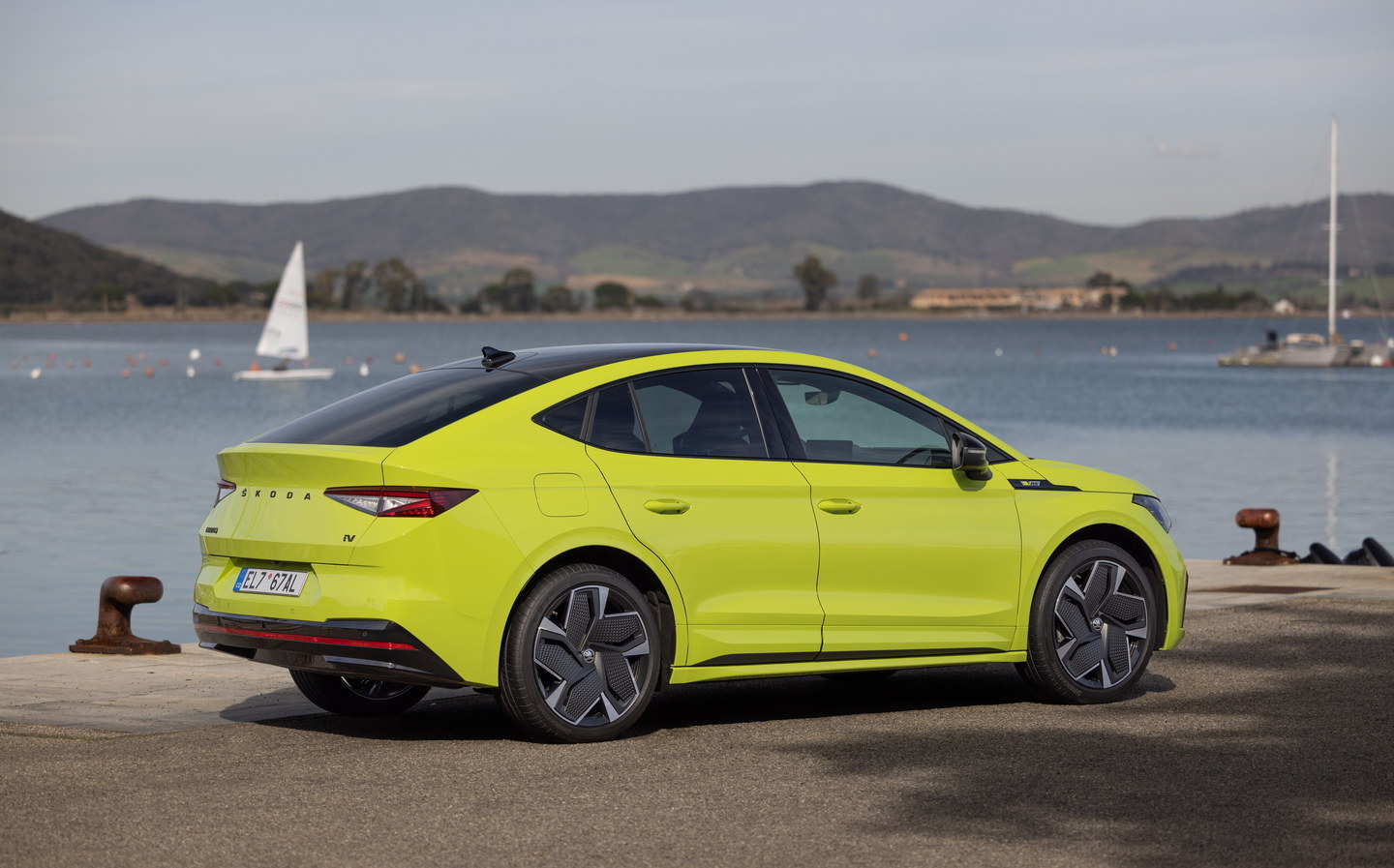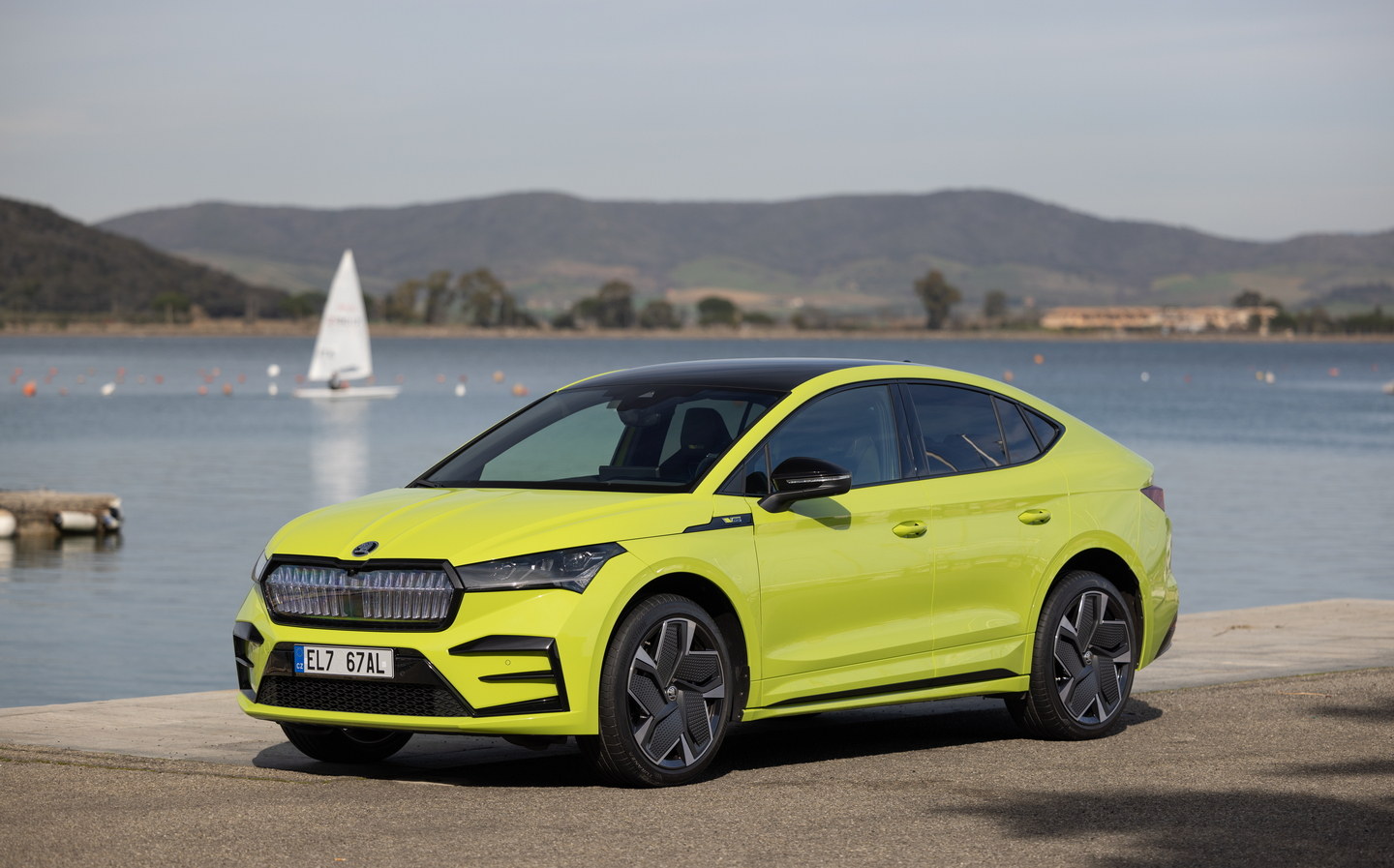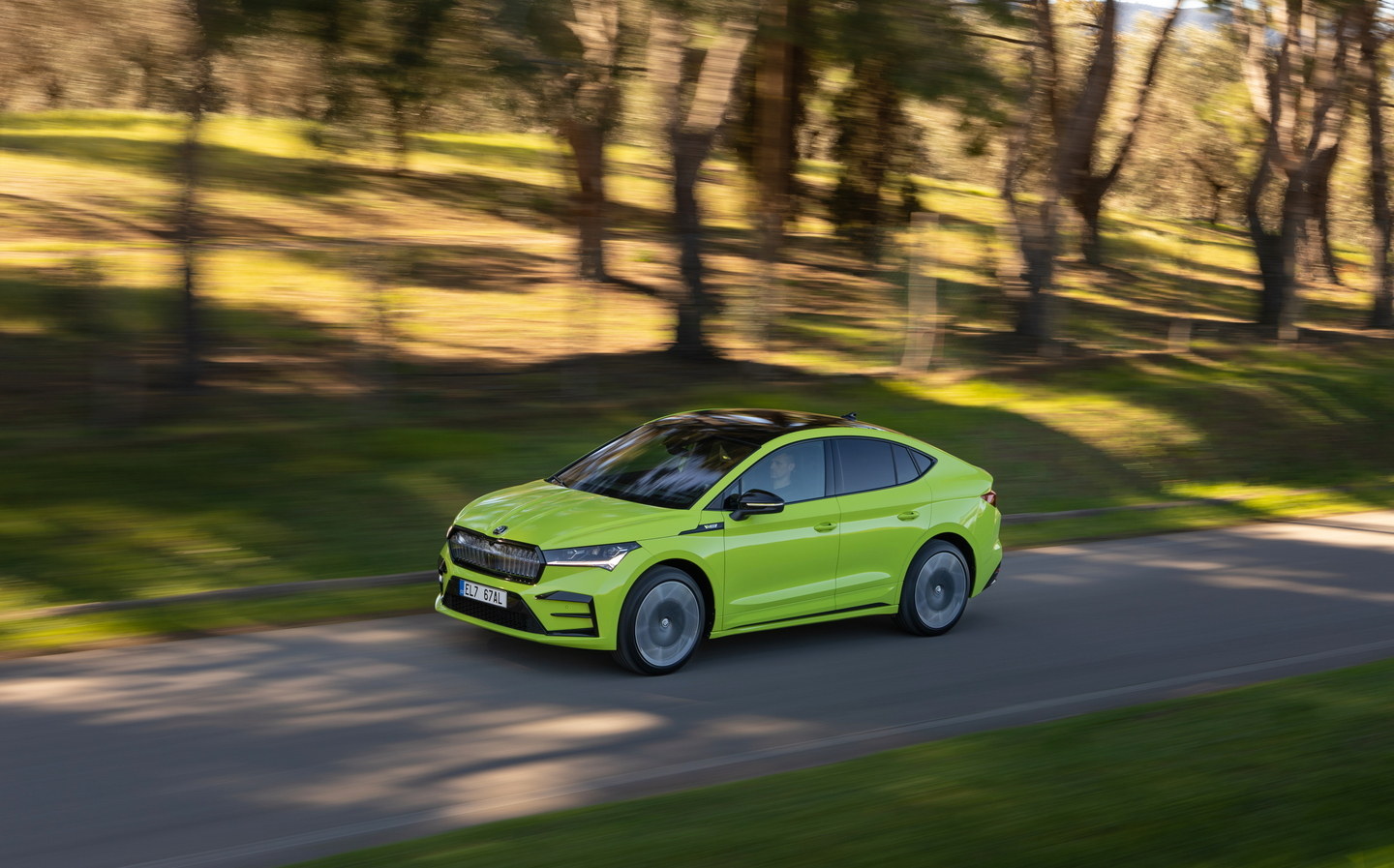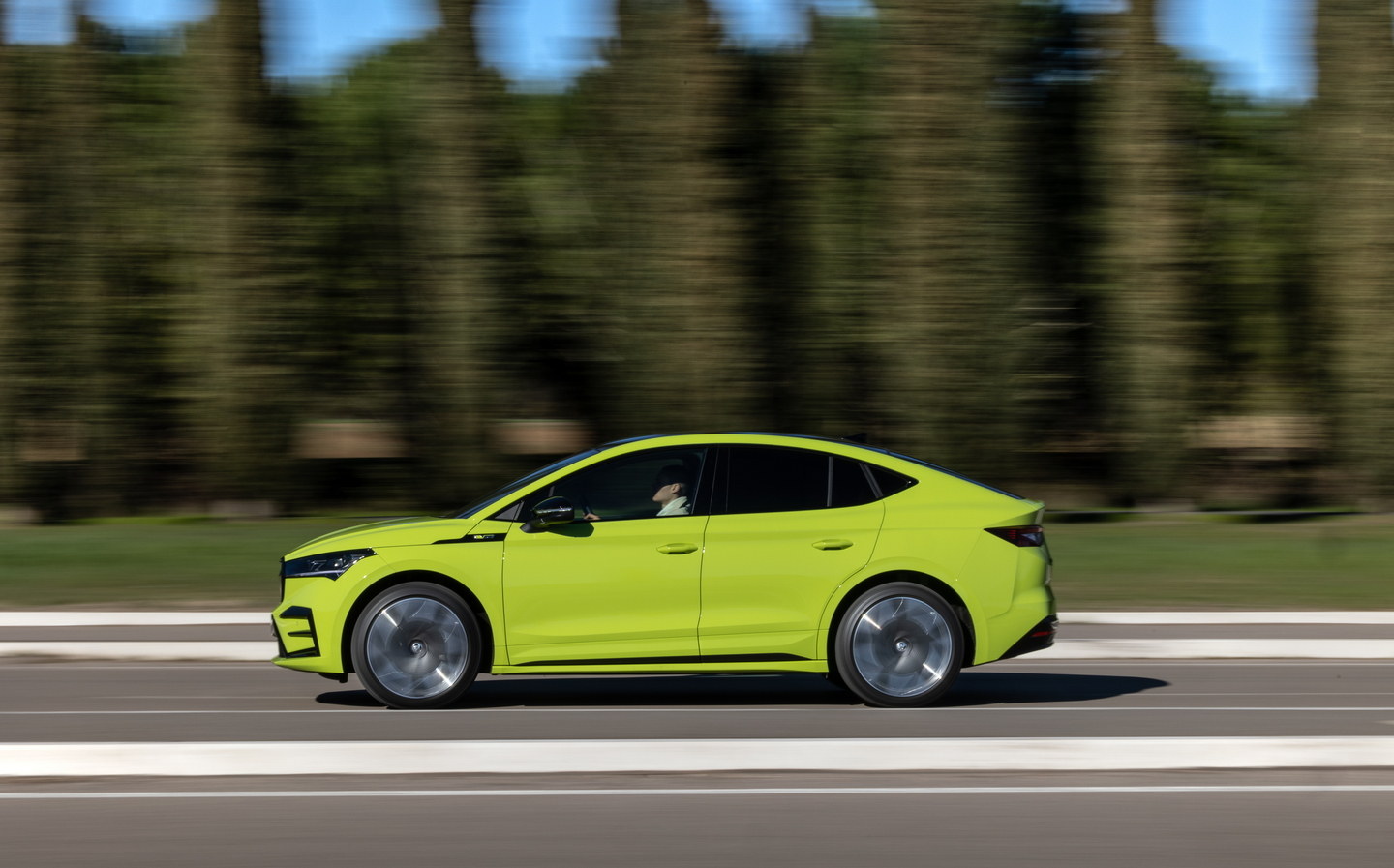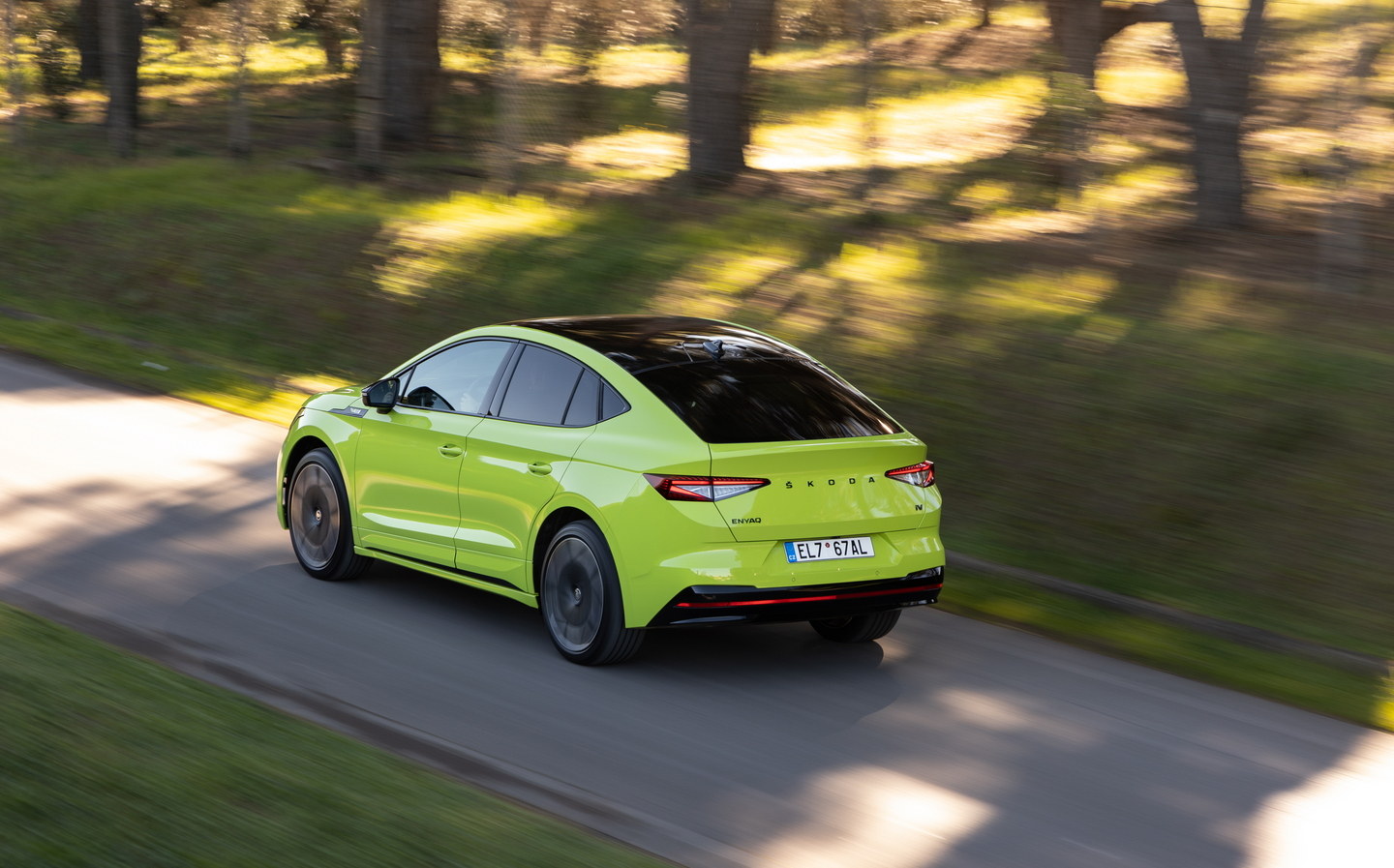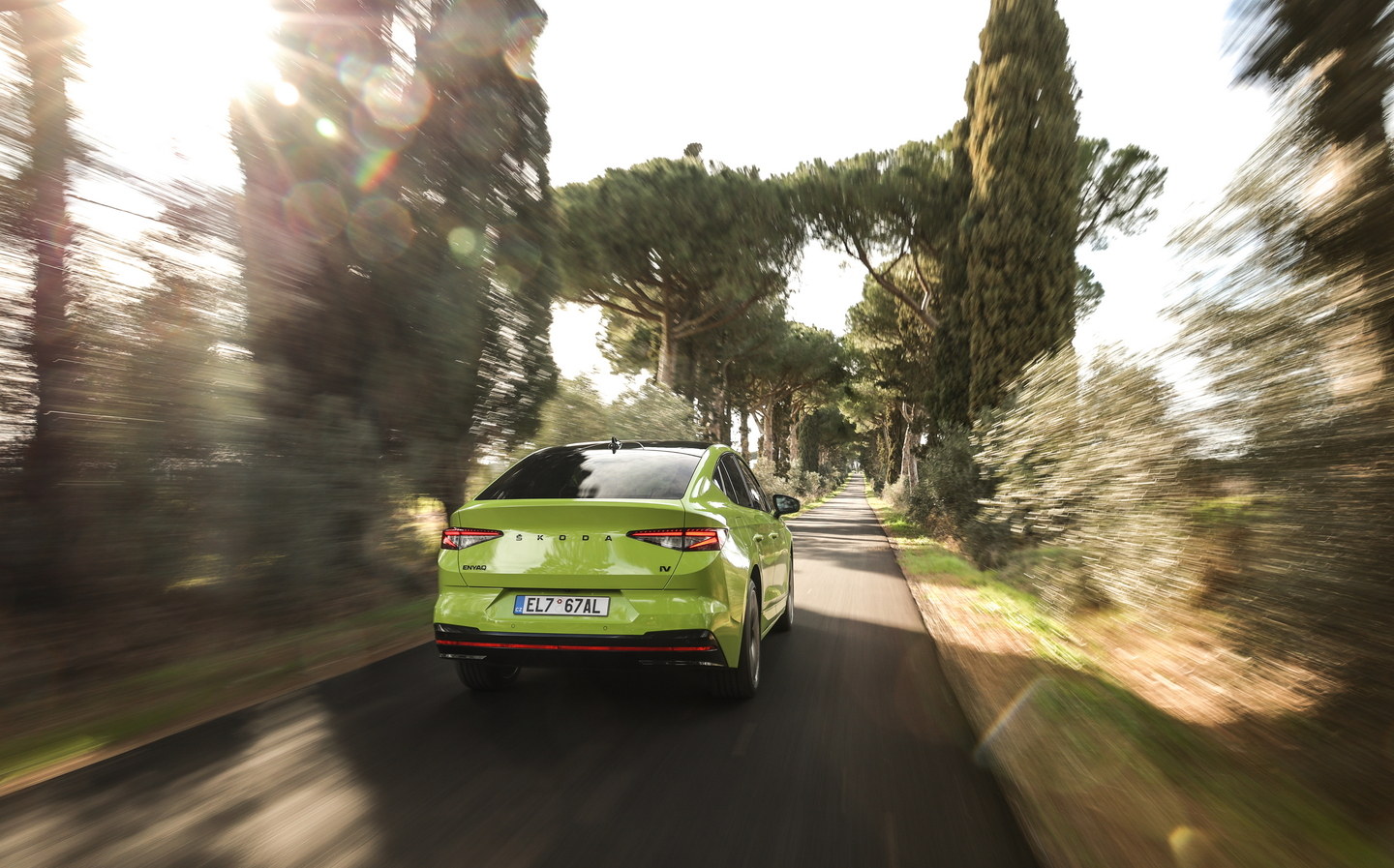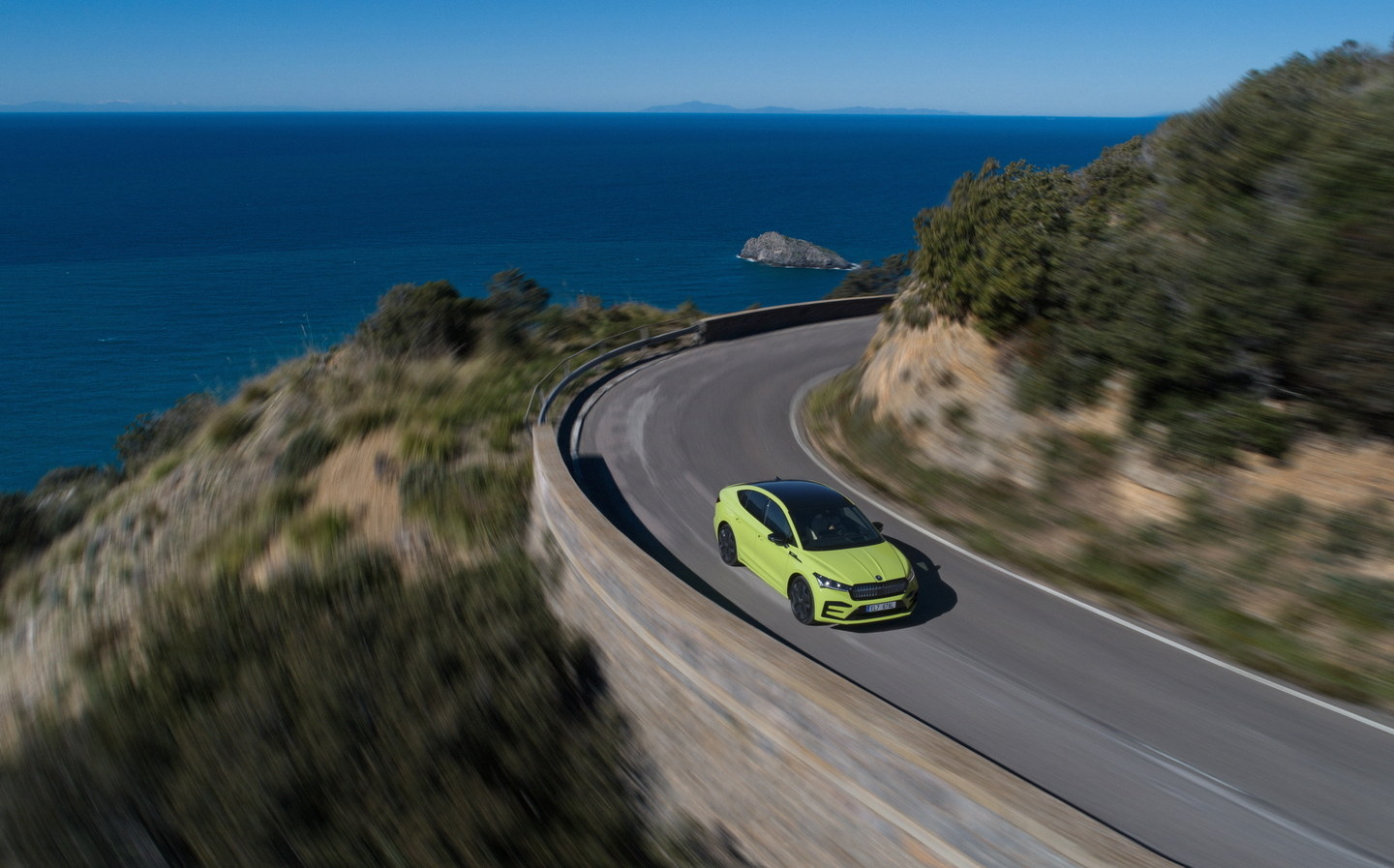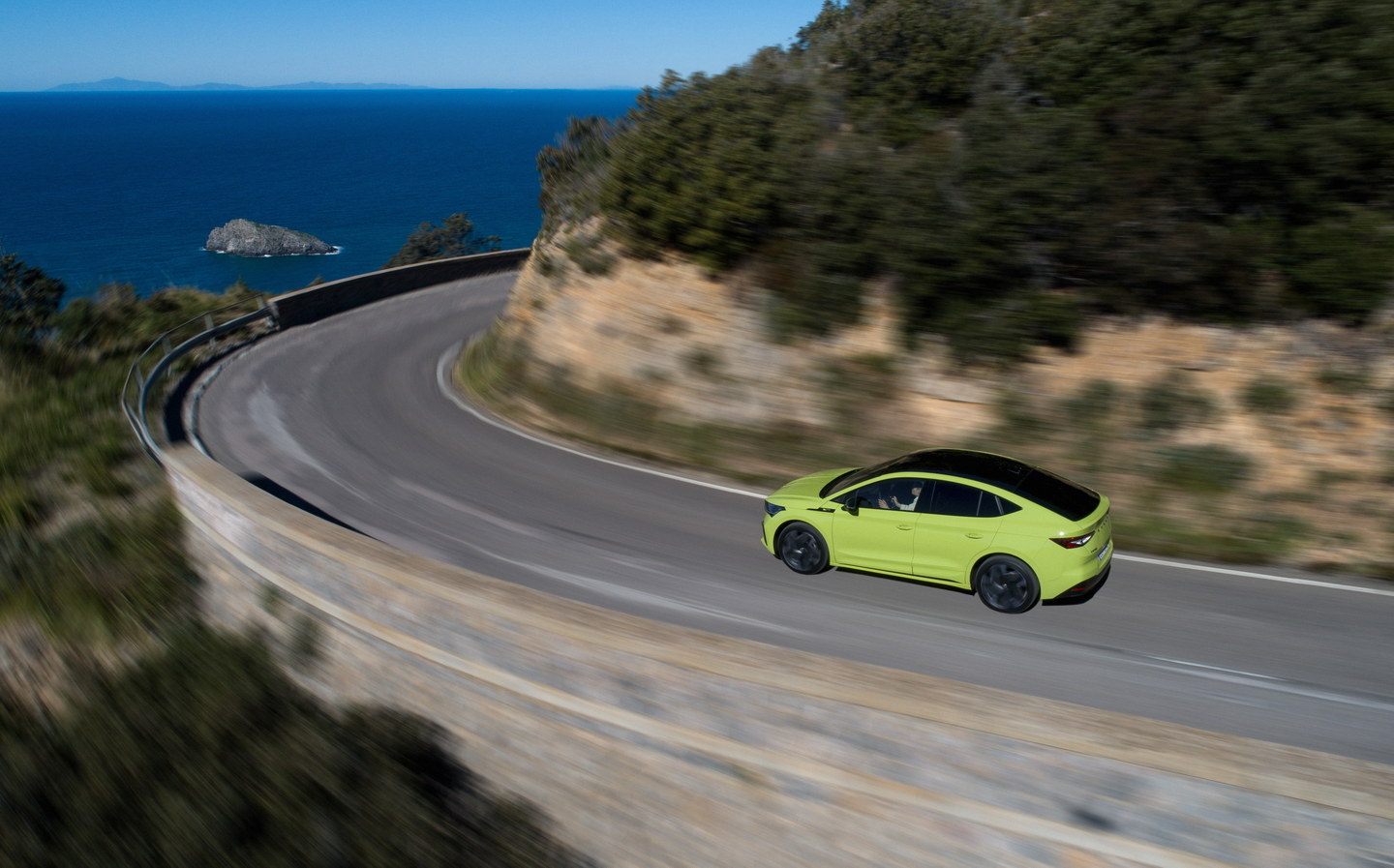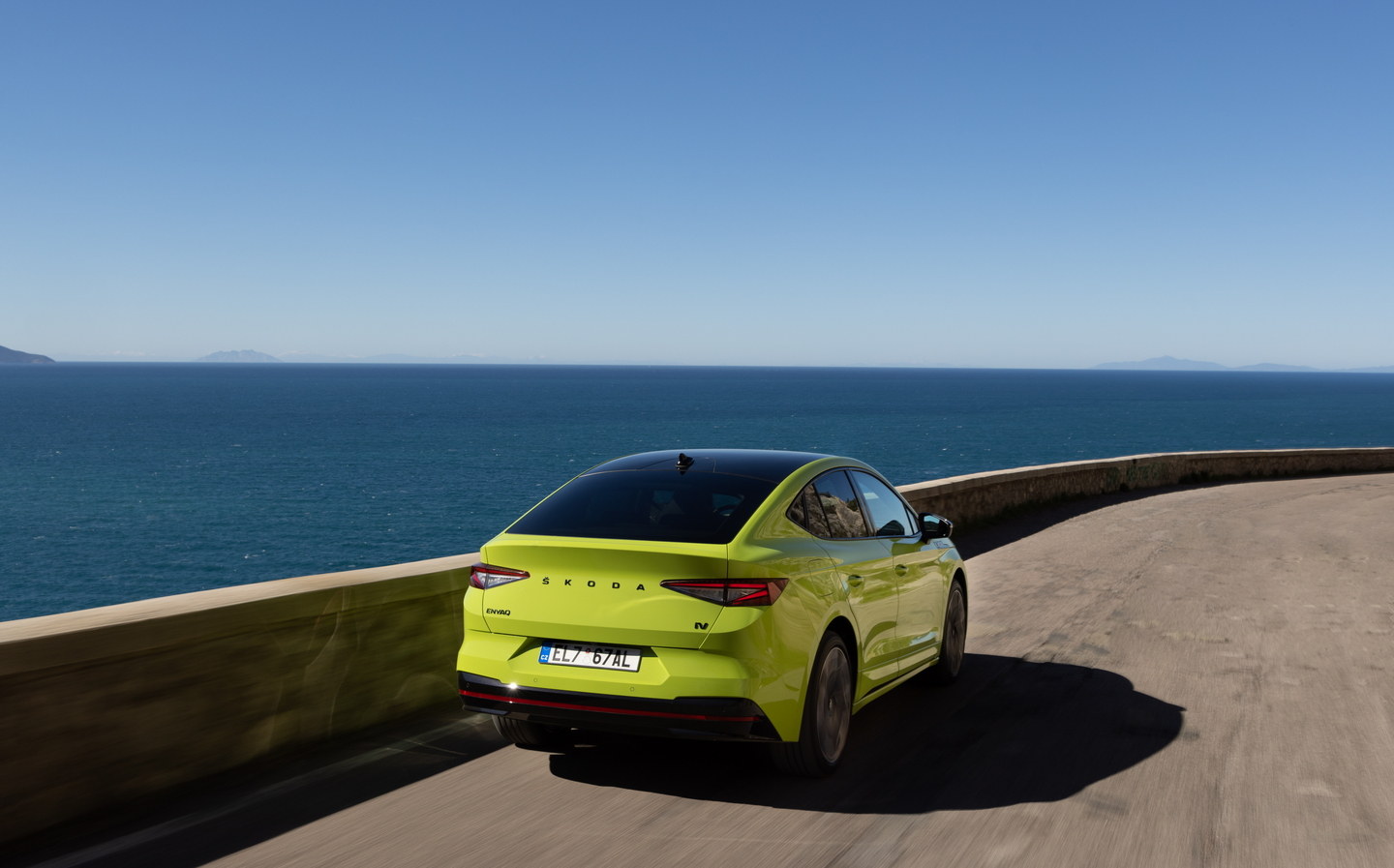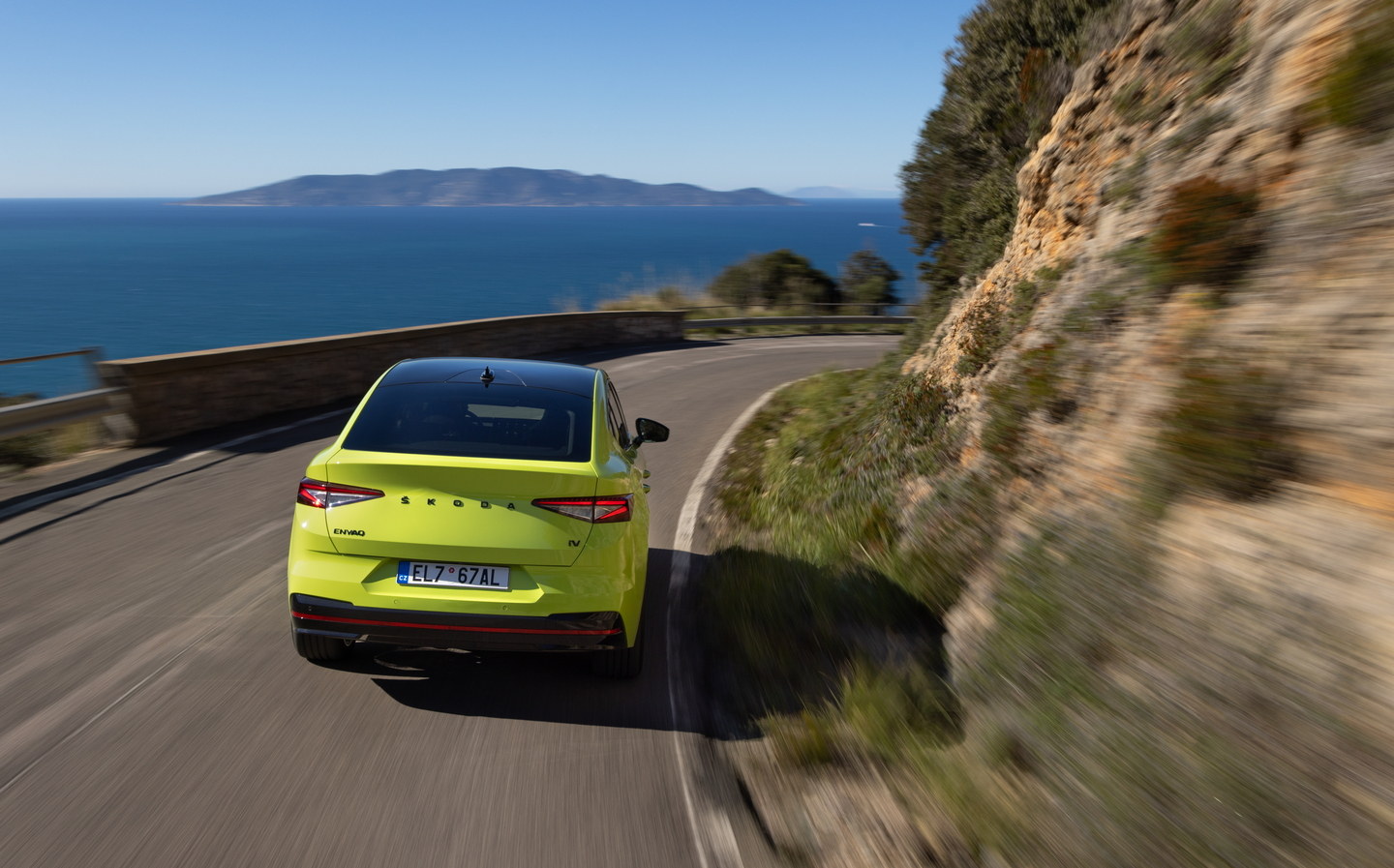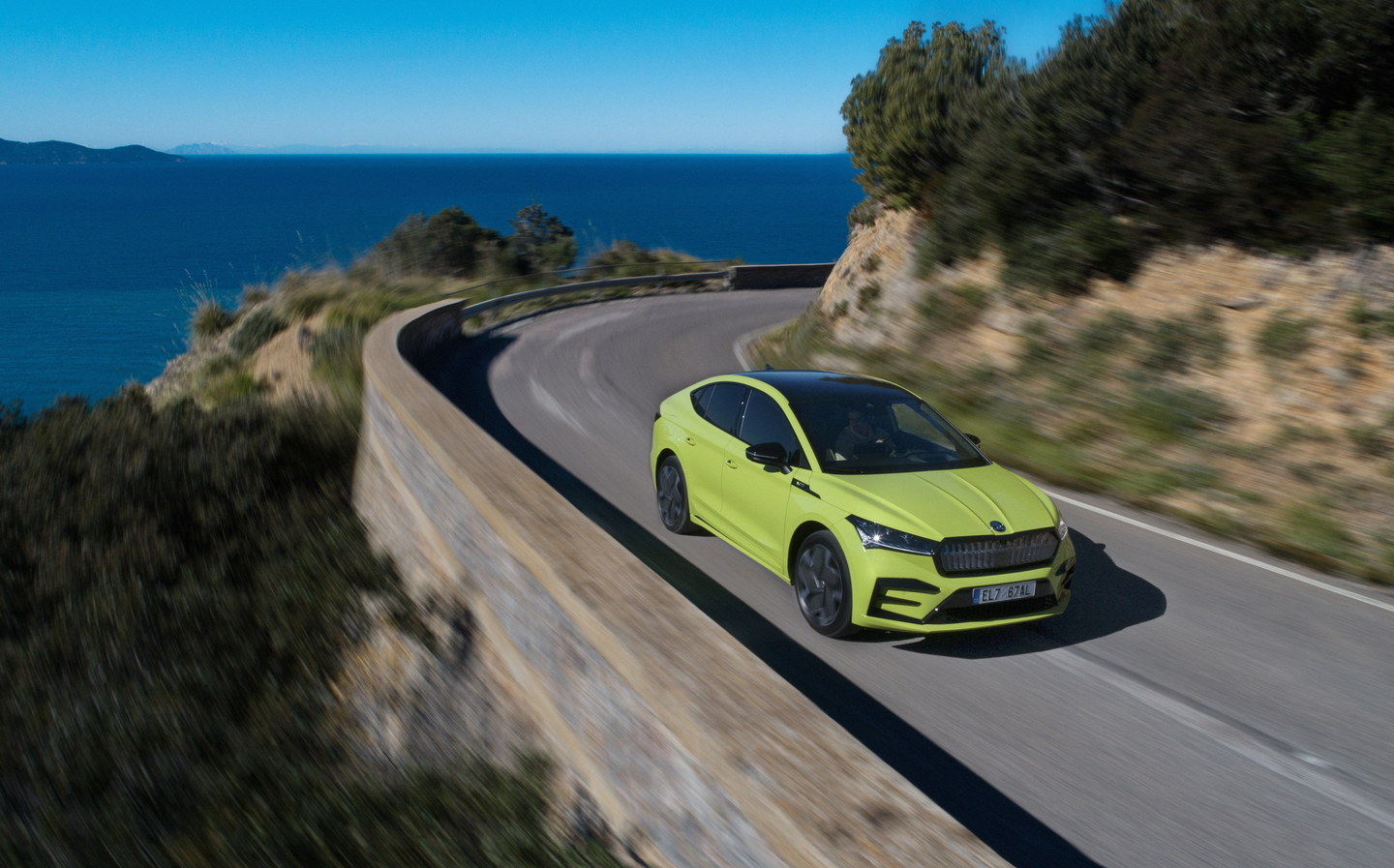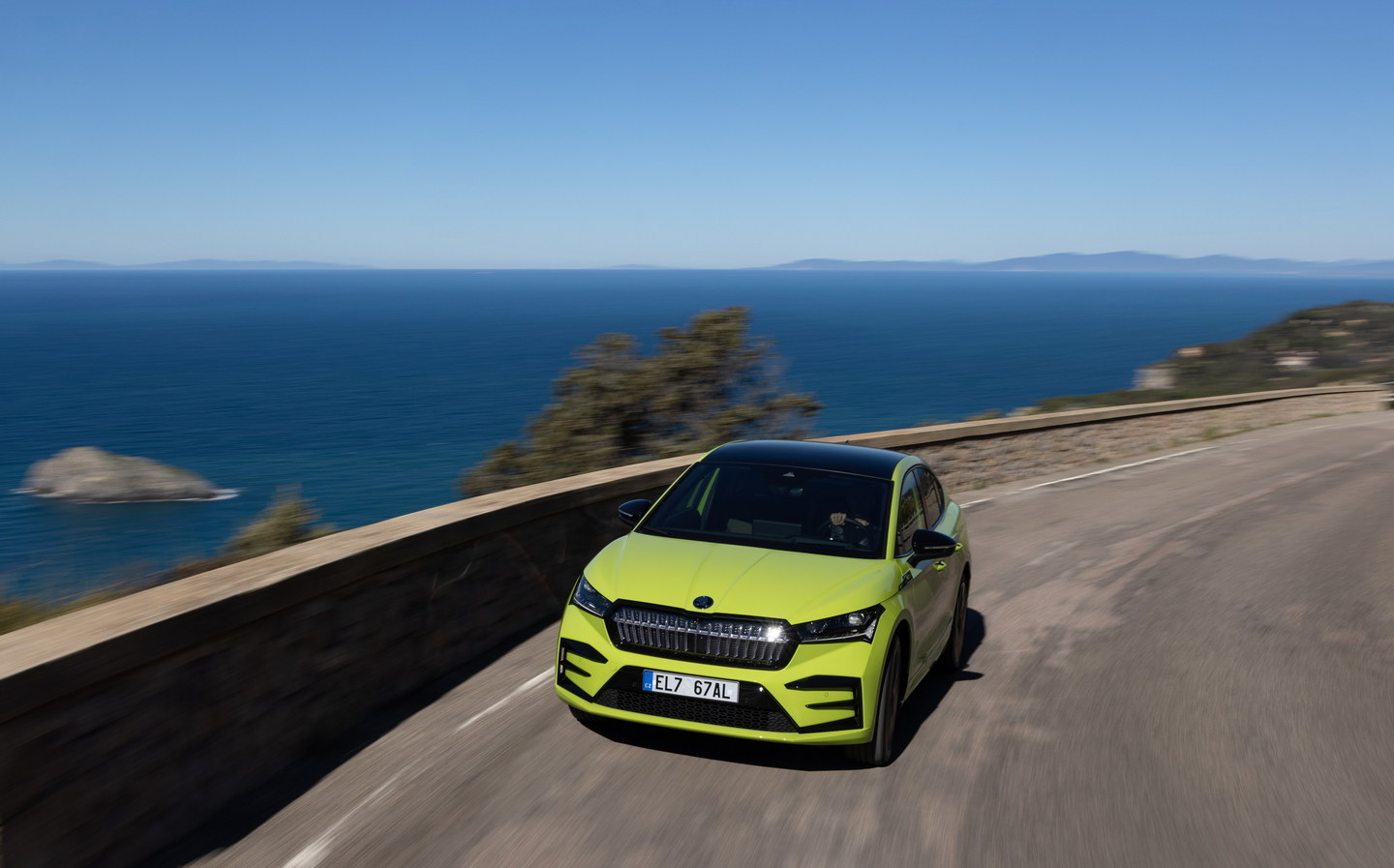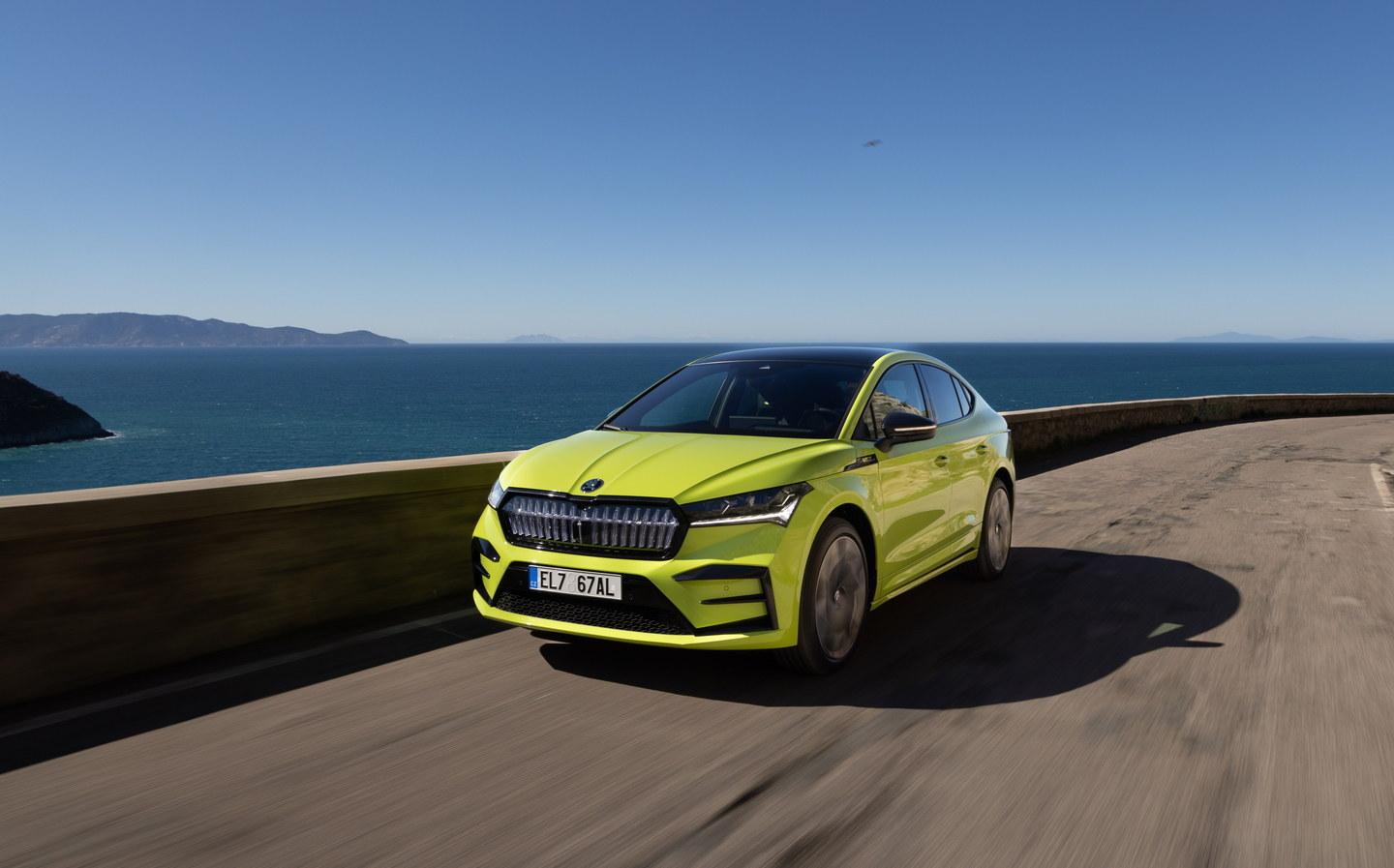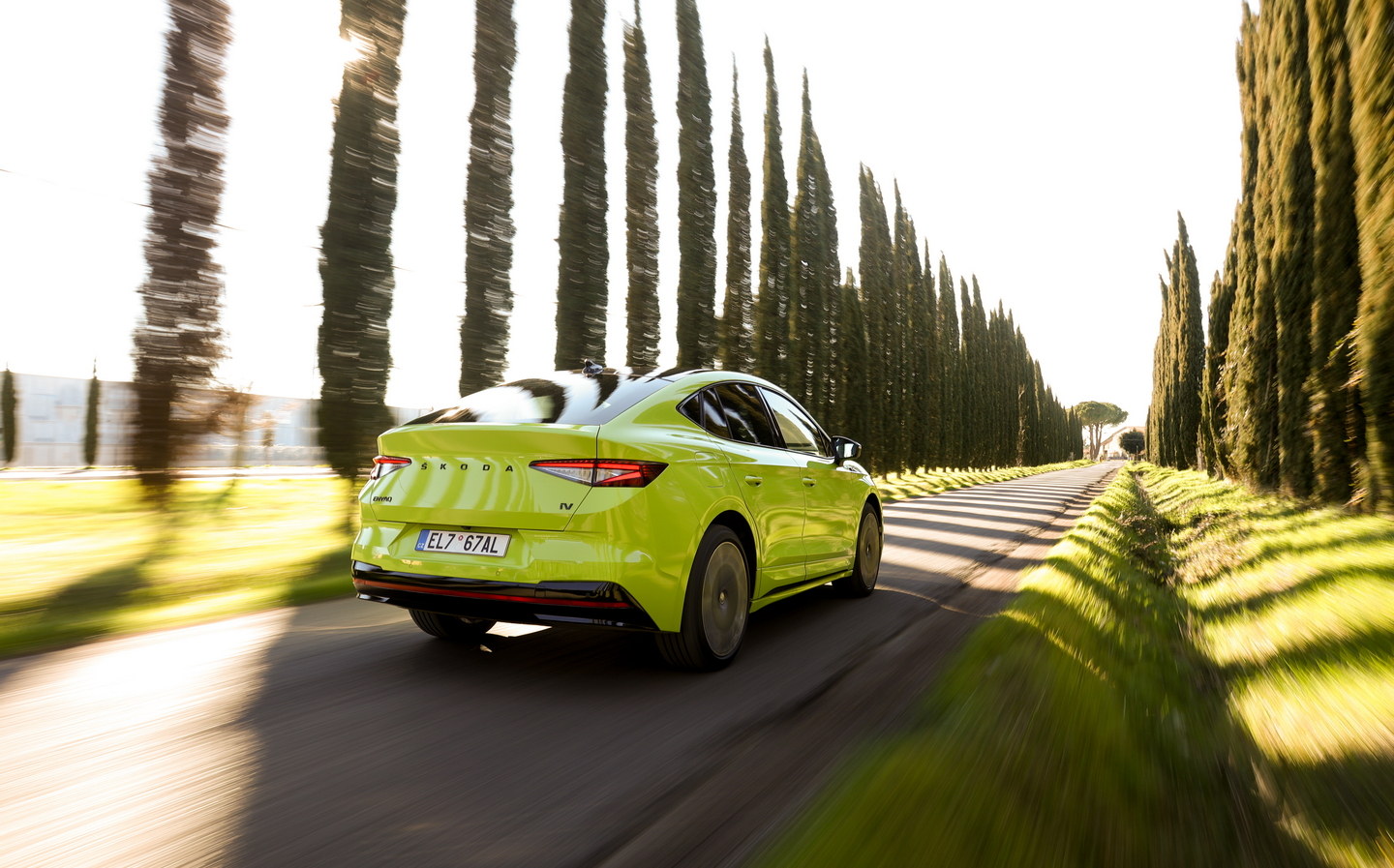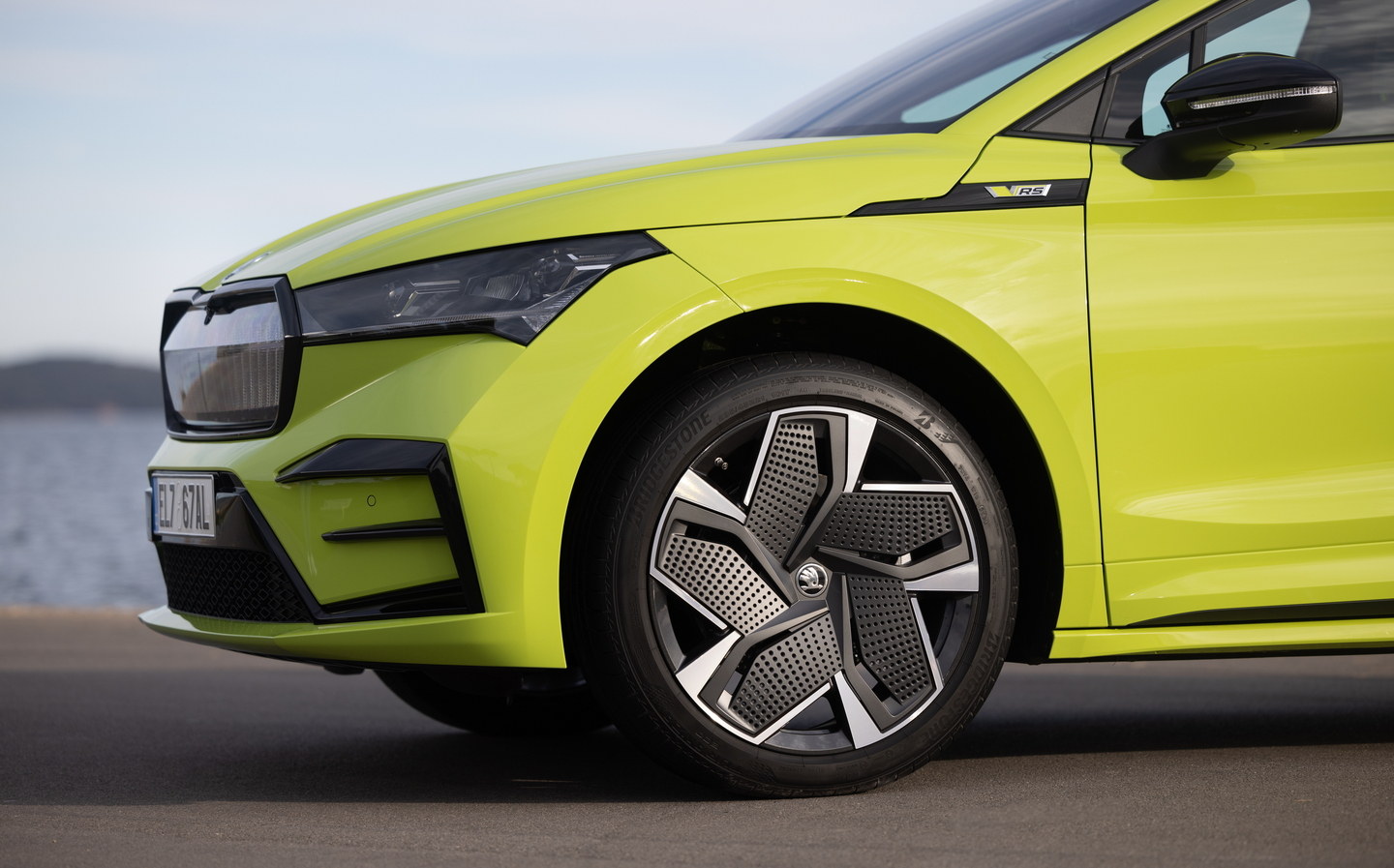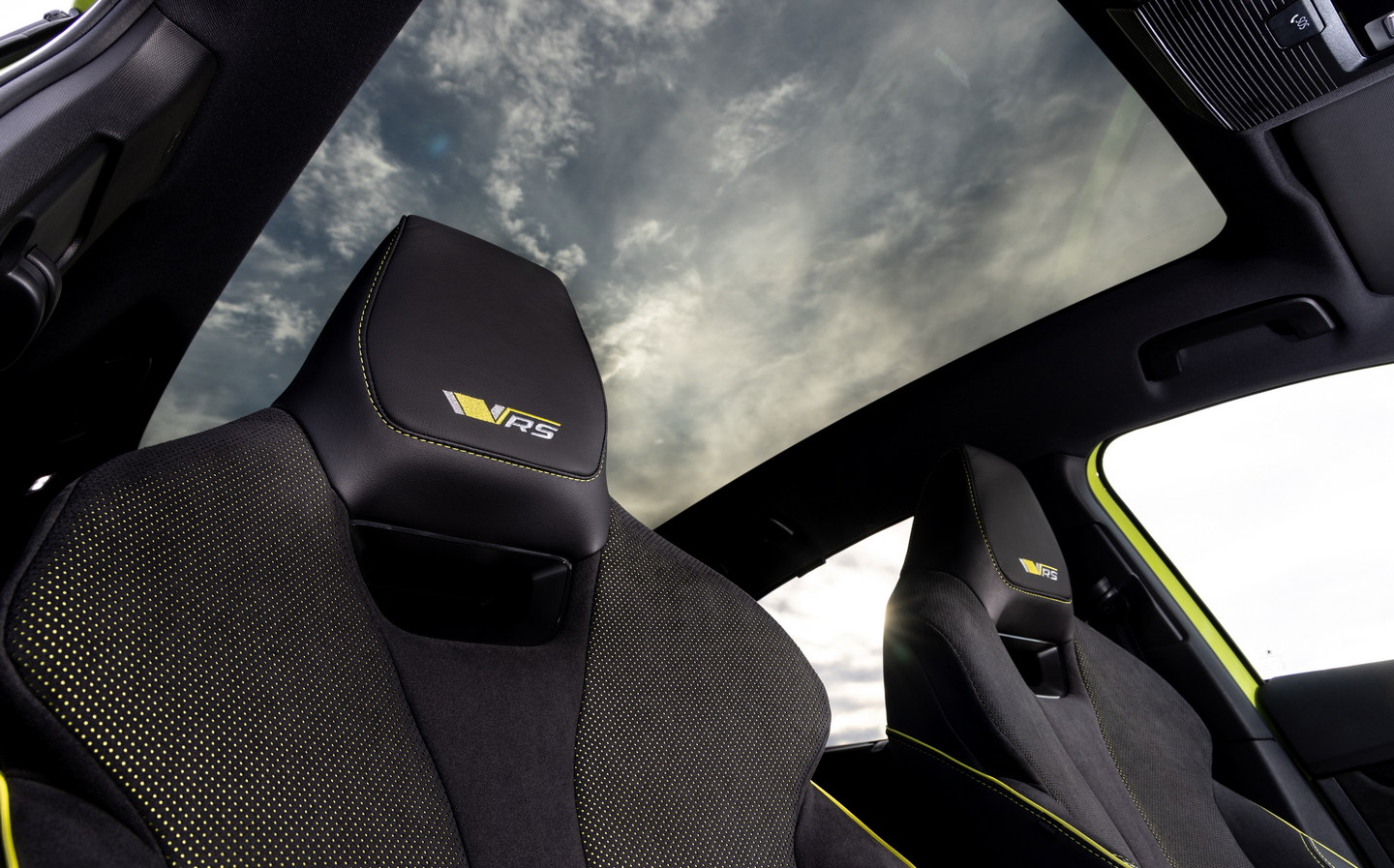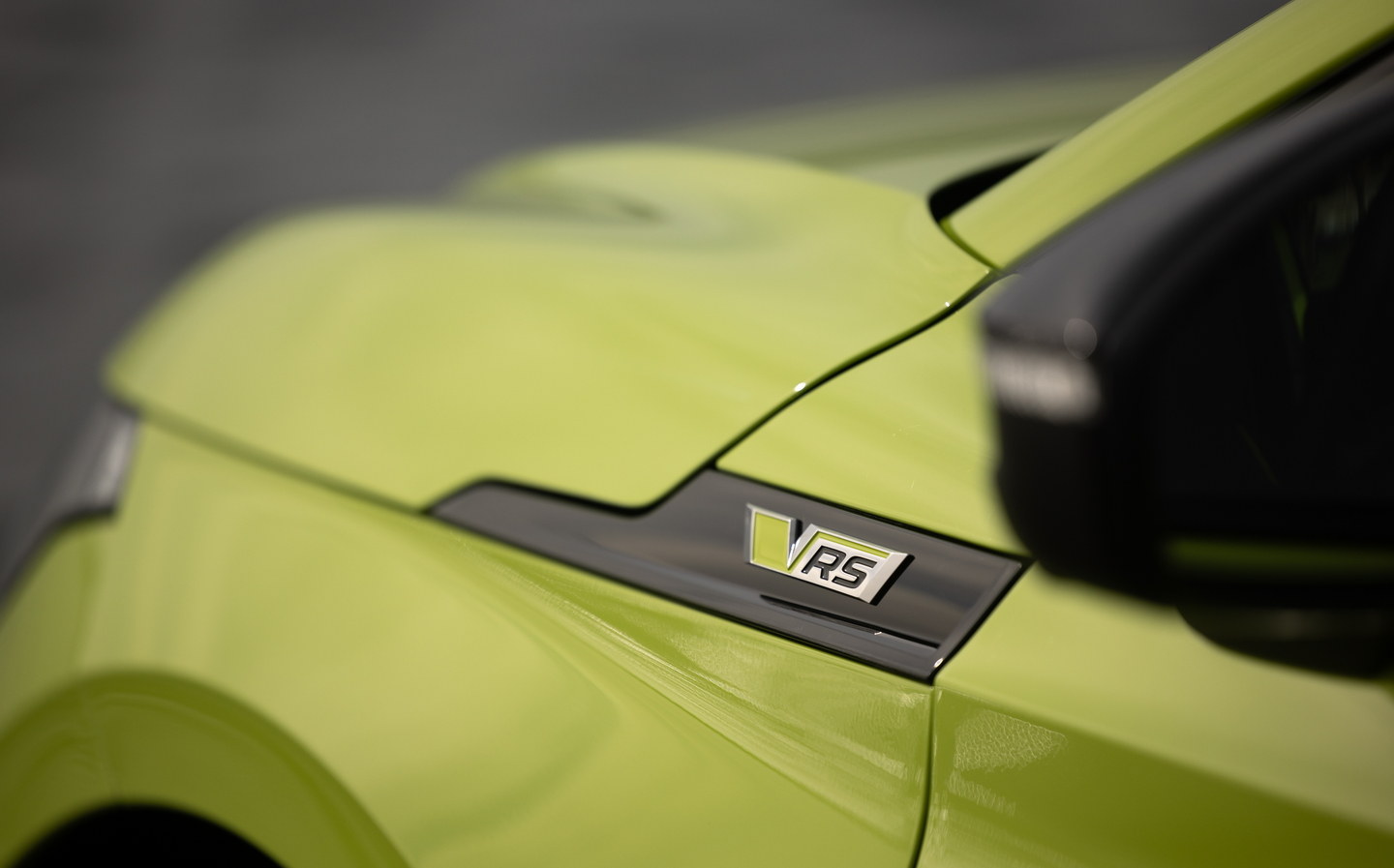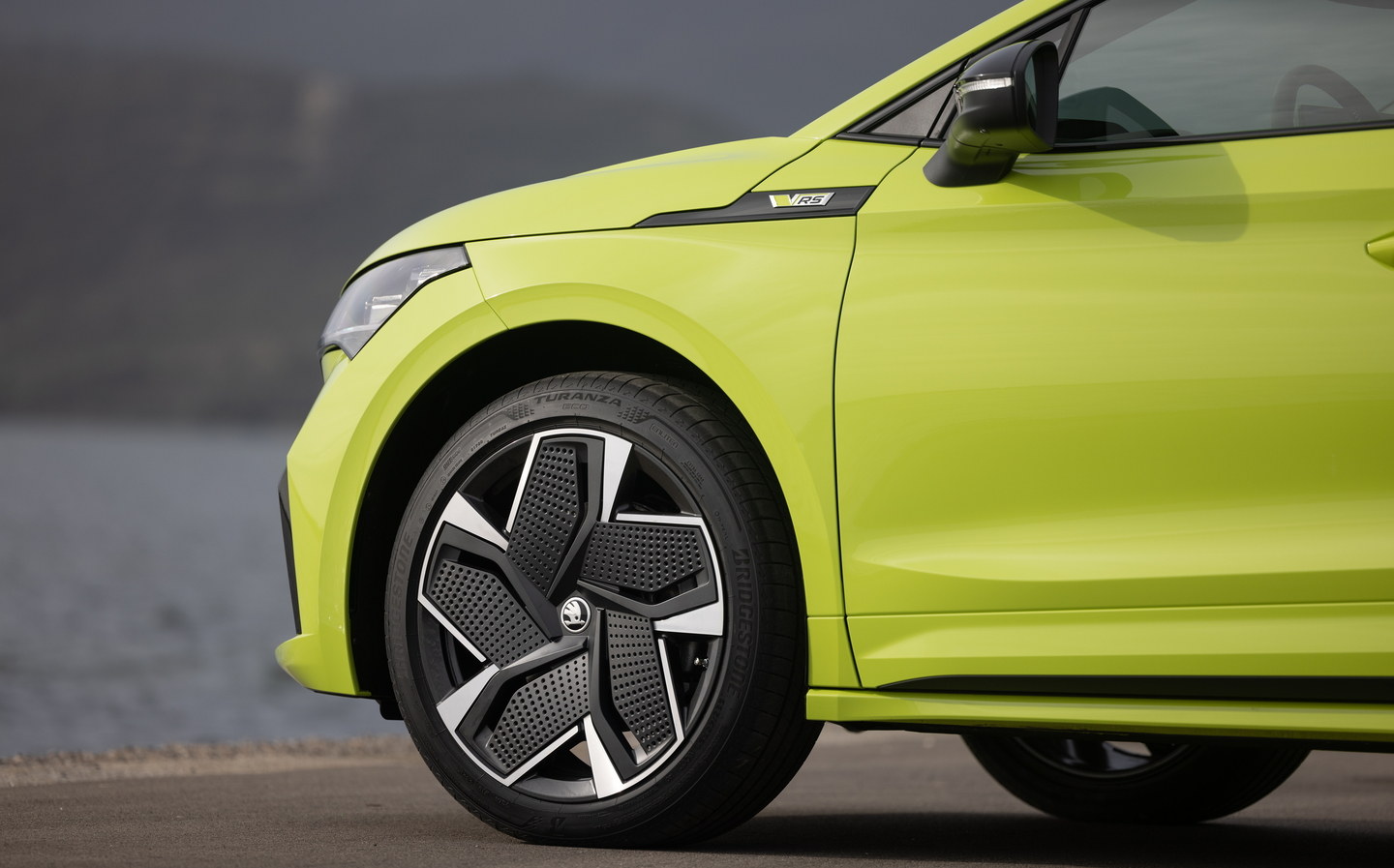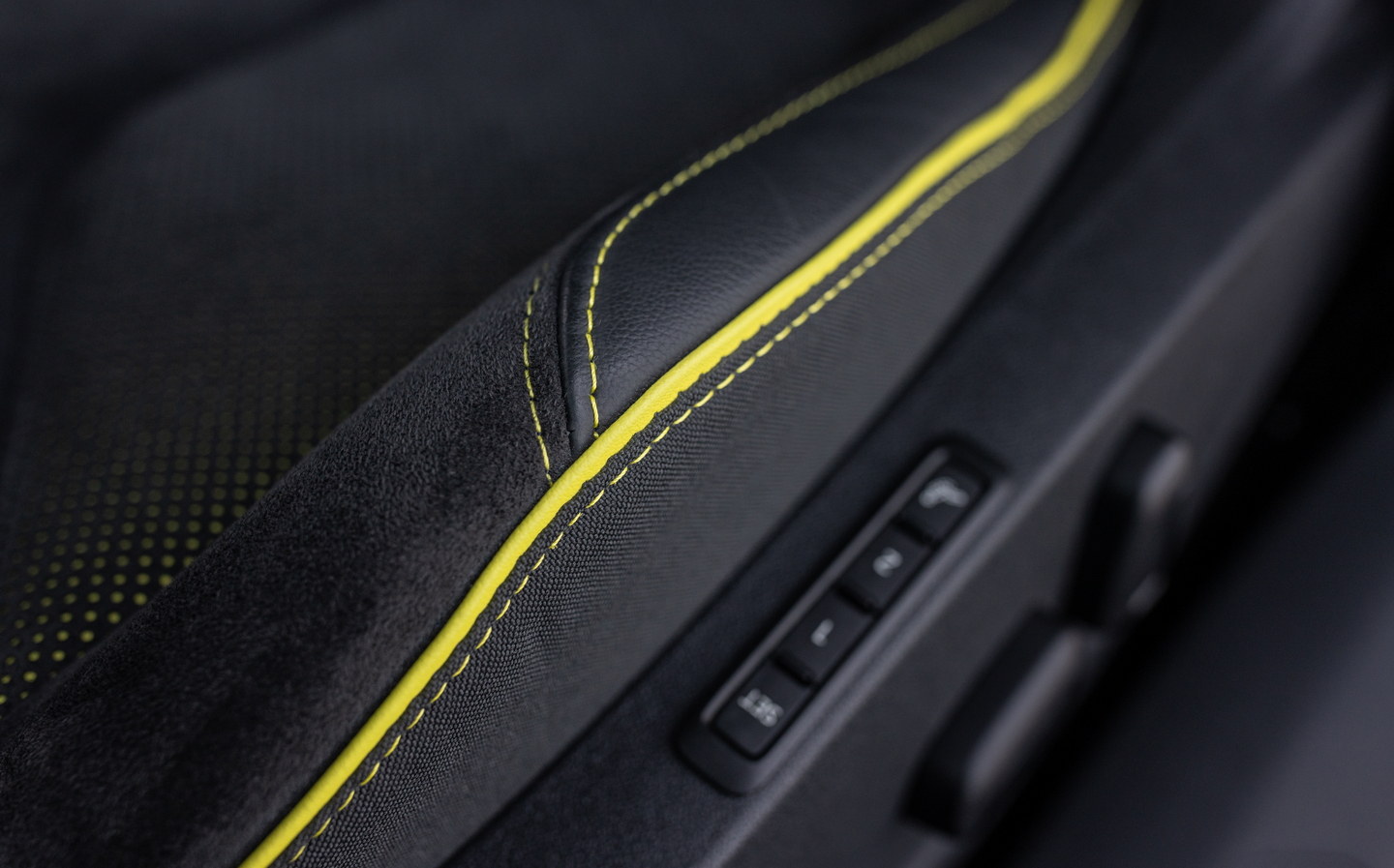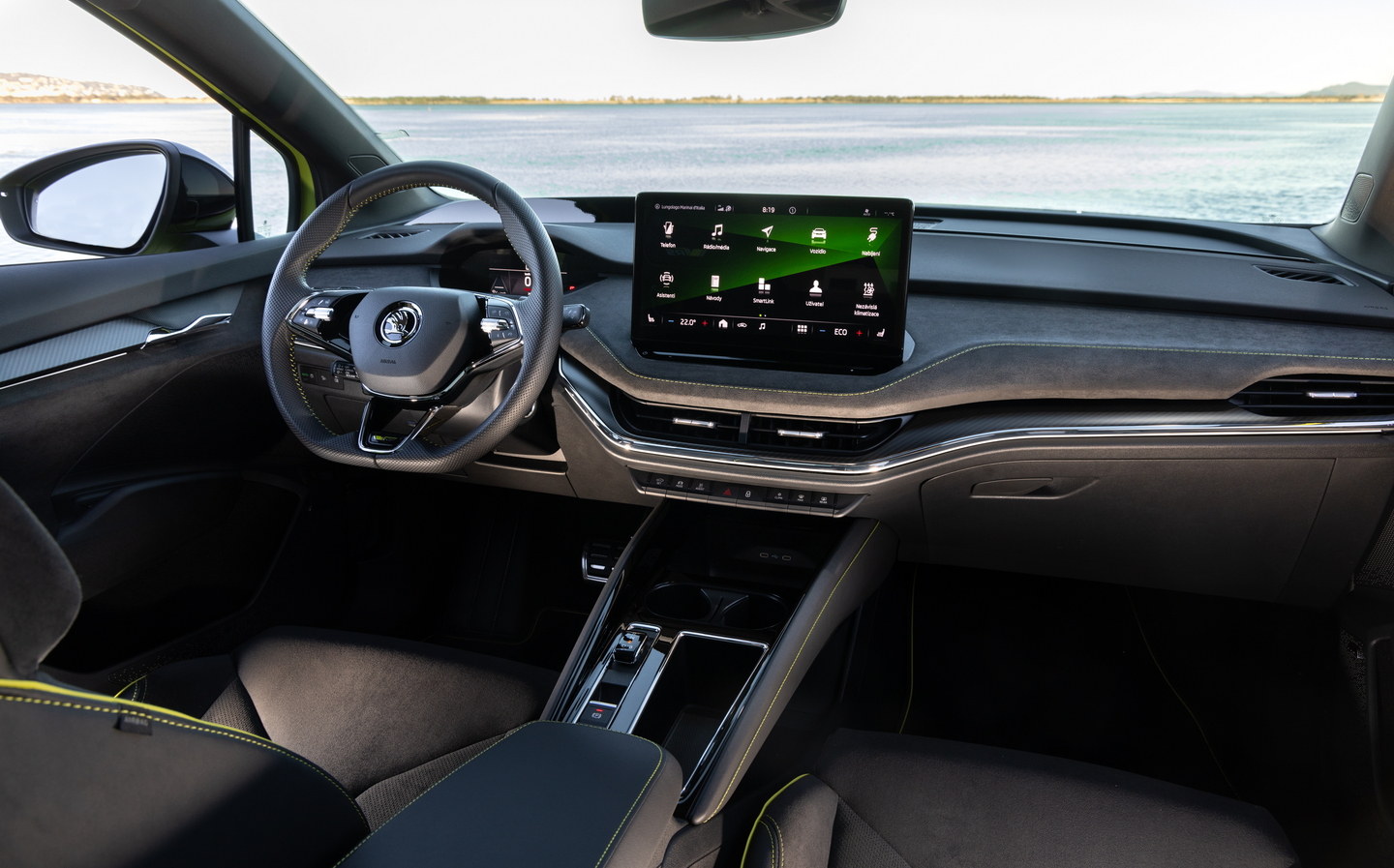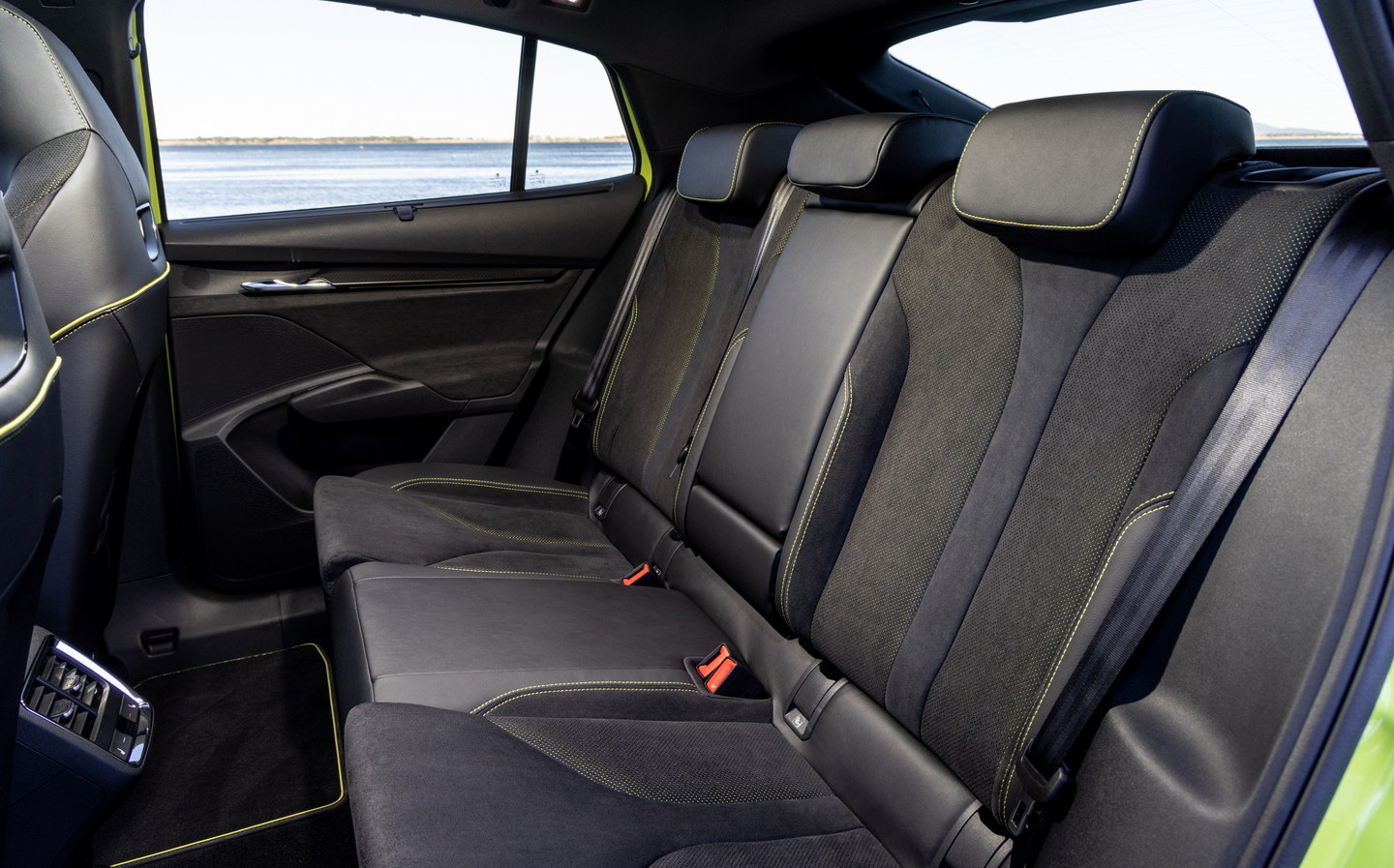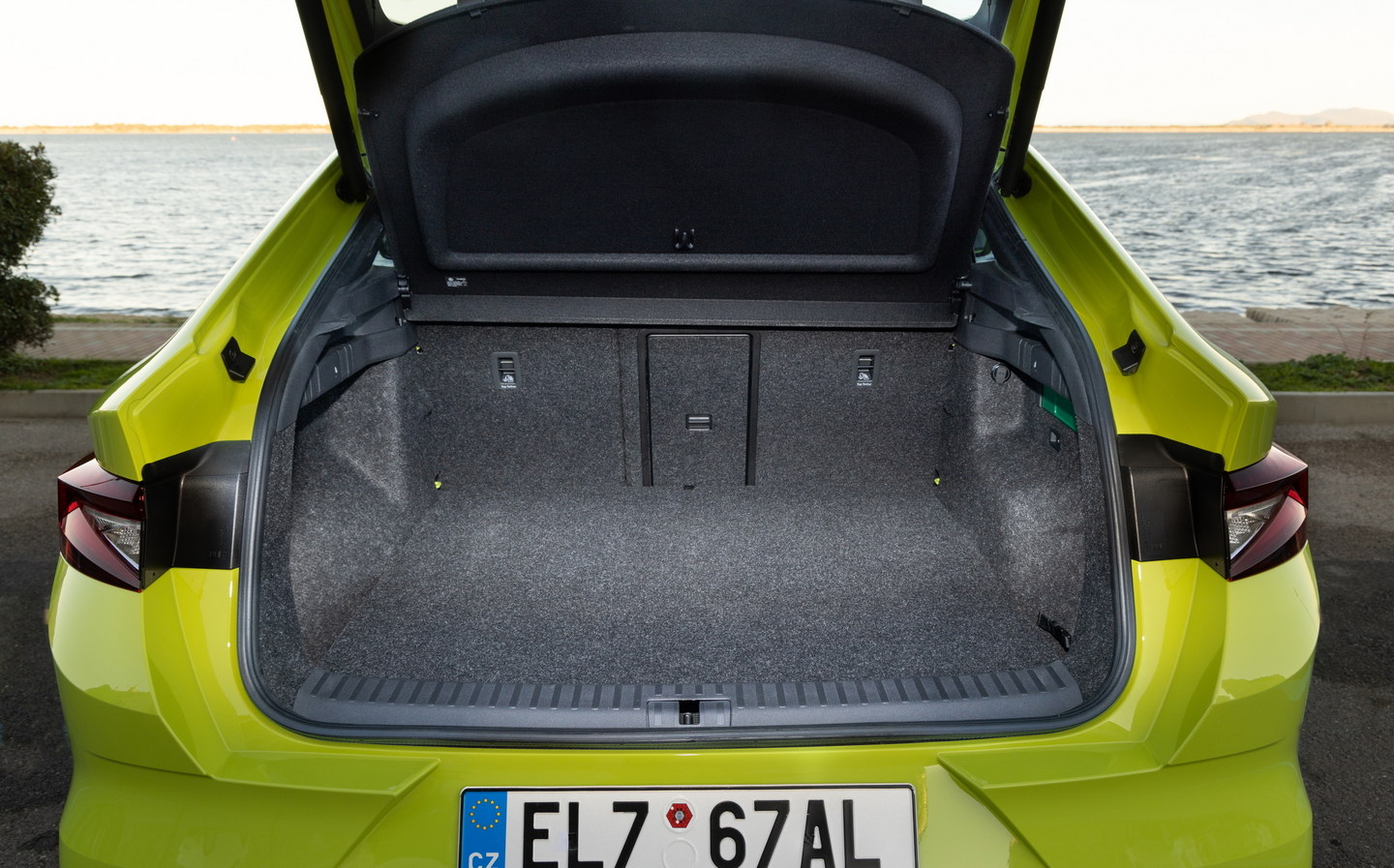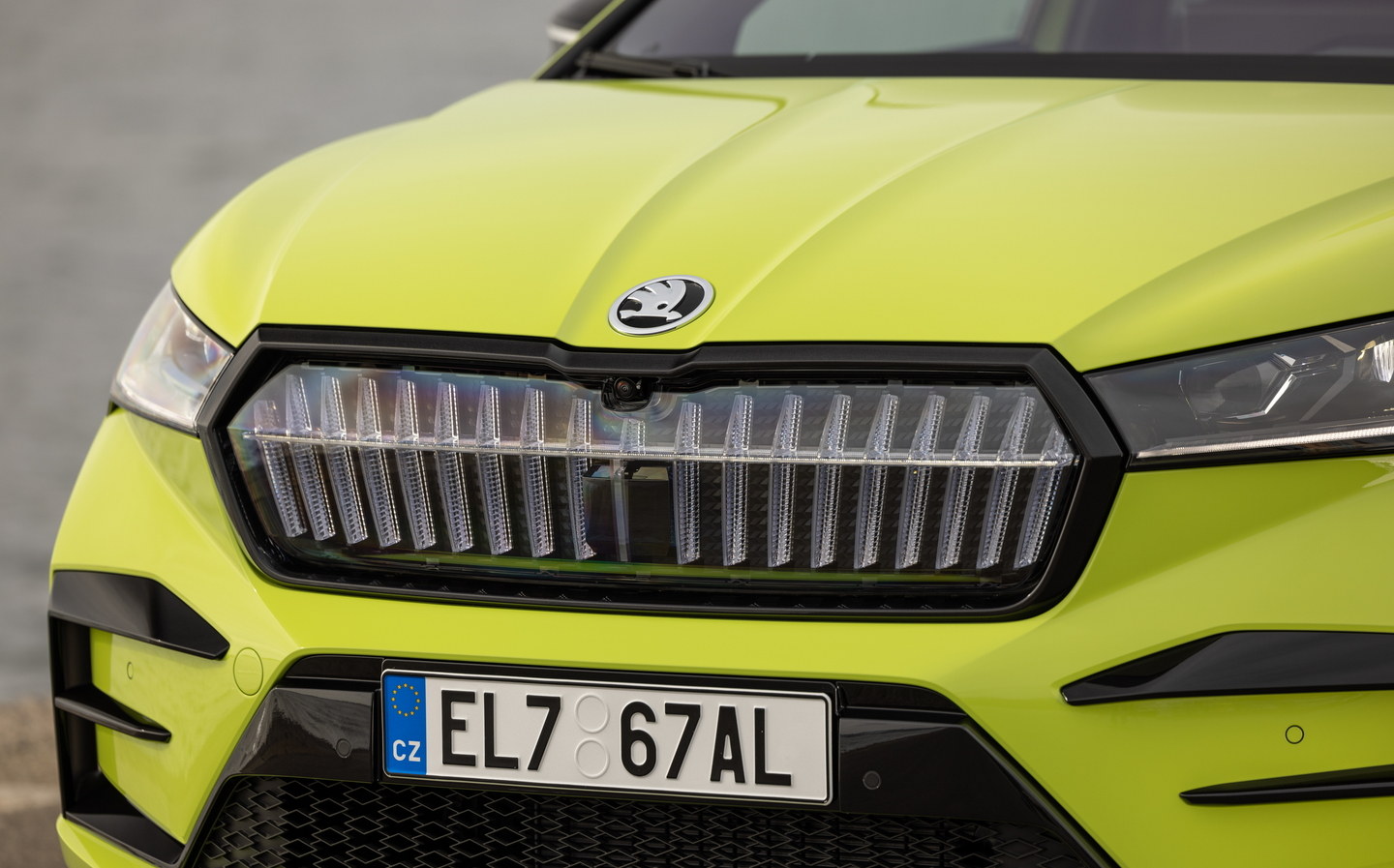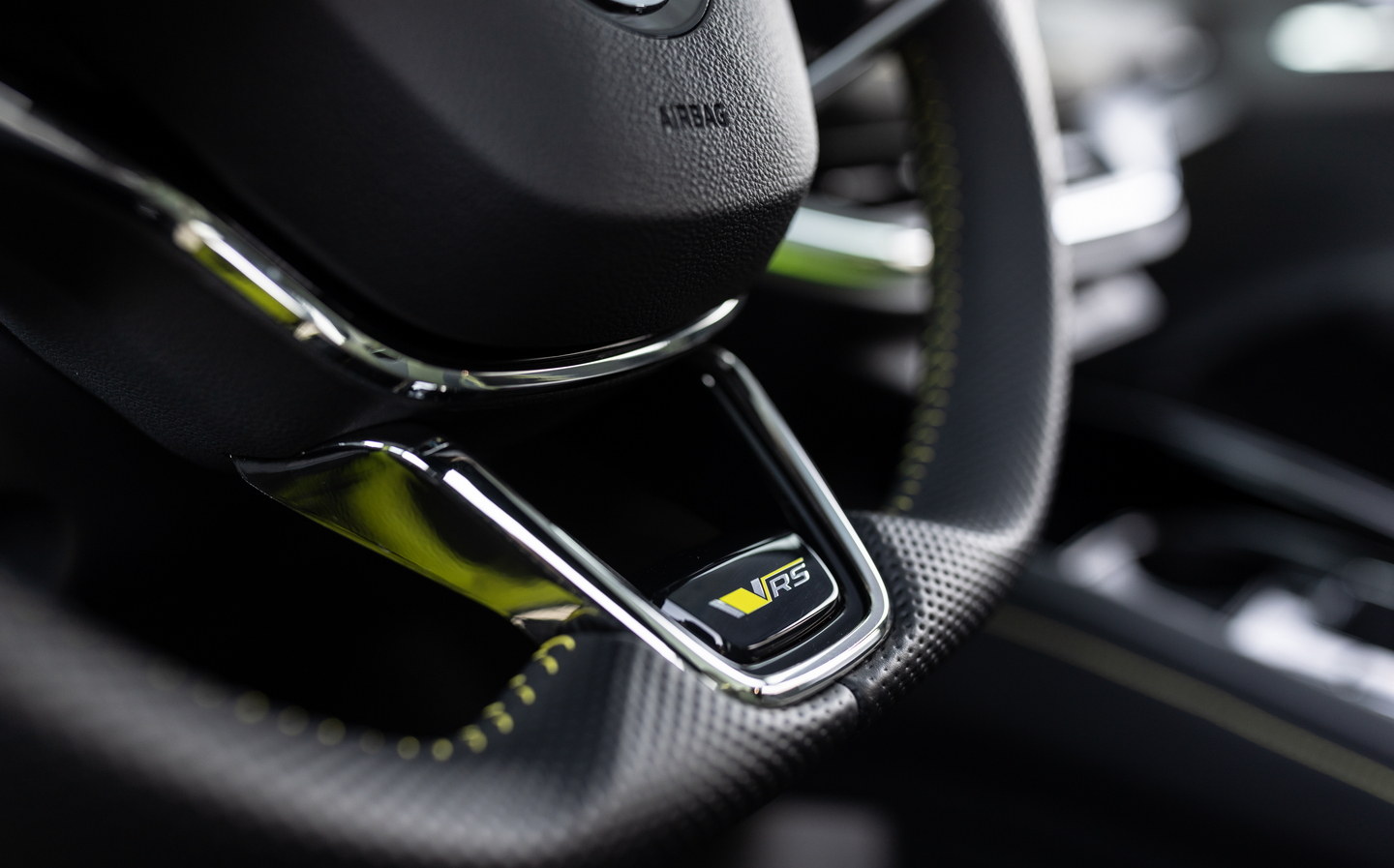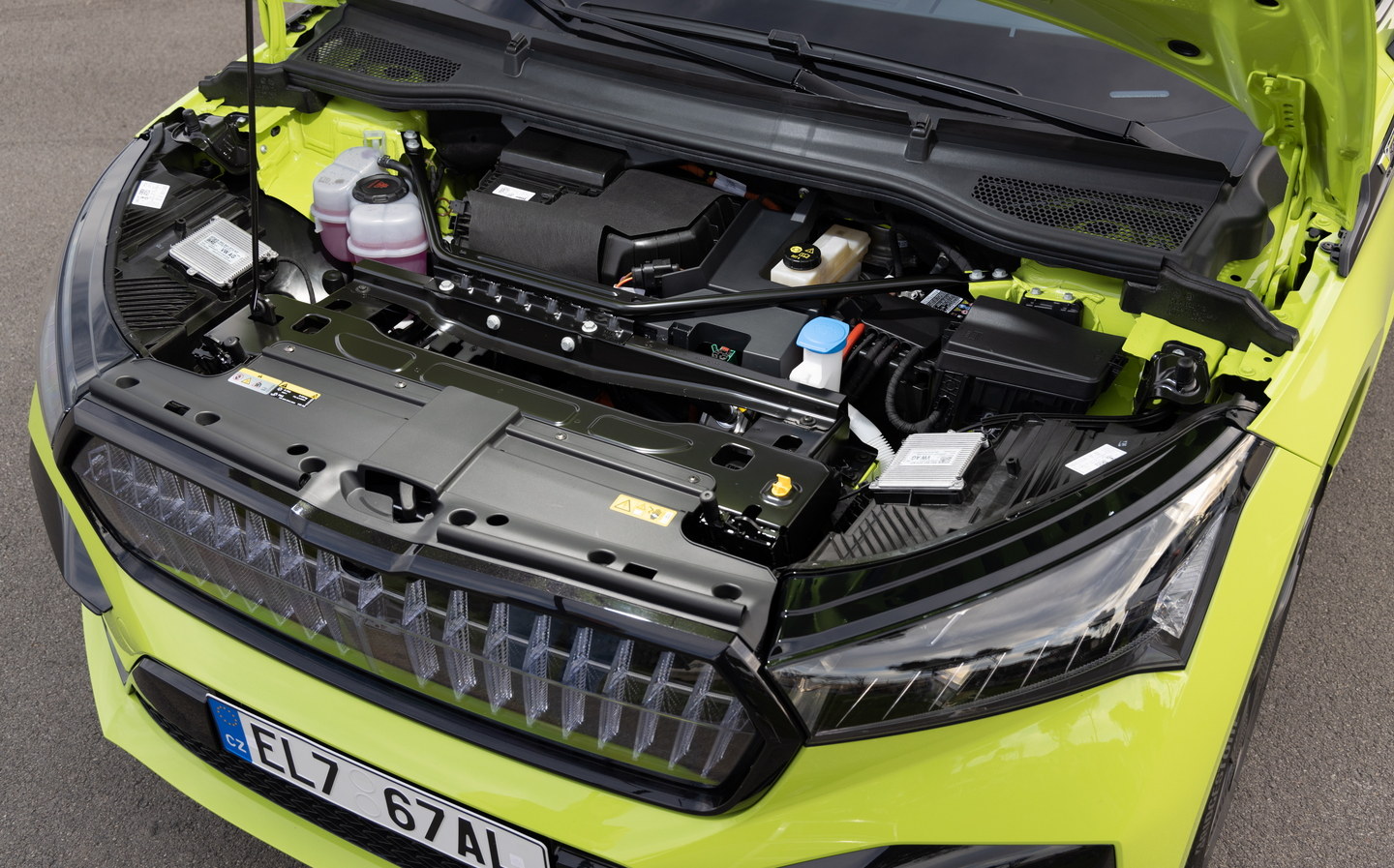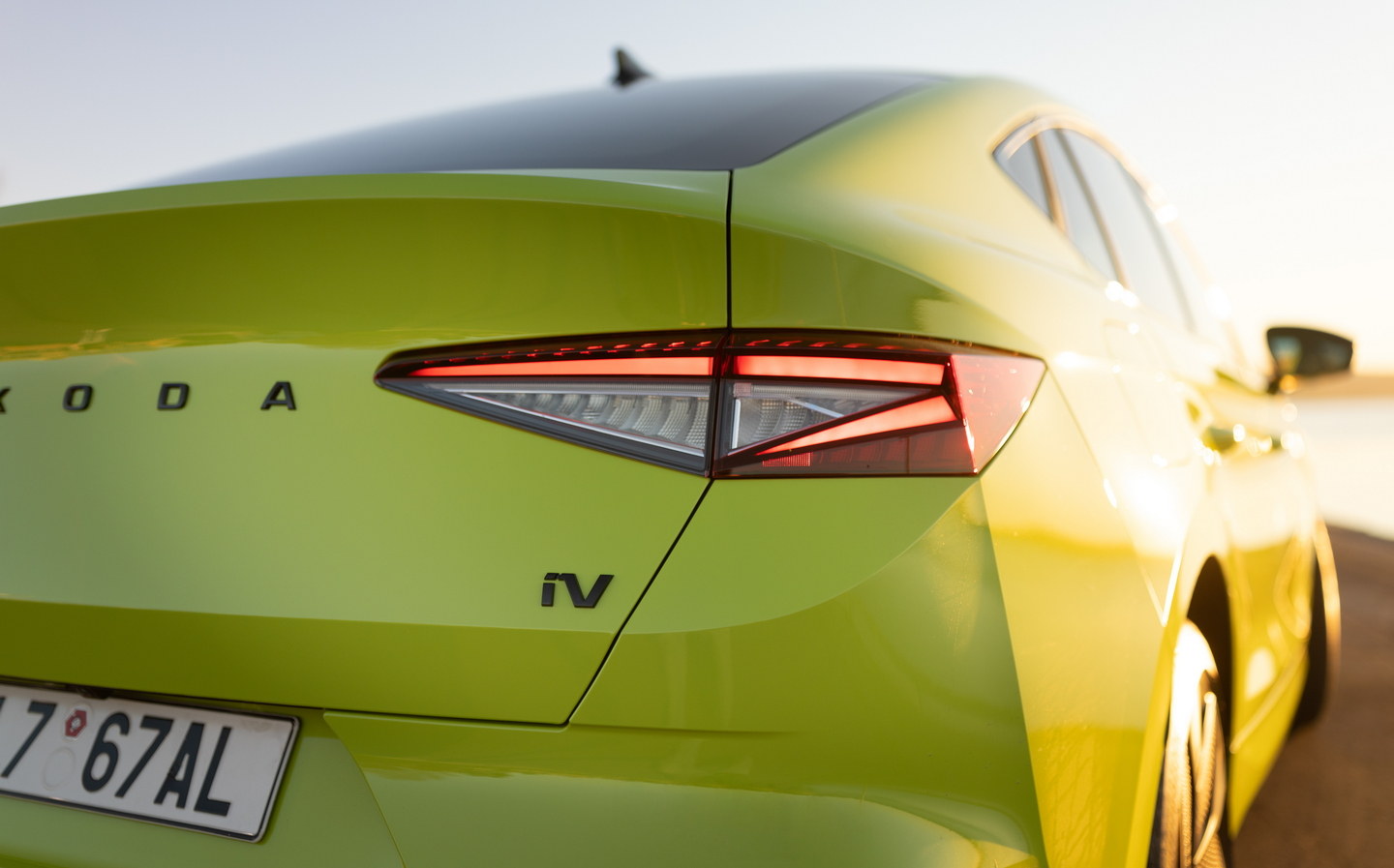Skoda Enyaq Coupé iV vRS 2022 review: Lean, green but not very sporty machine
All the green
The whole idea of a coupé-SUV is, to be honest, a bit daft. Taking a big, tall, practical vehicle and then removing some of that practicality in favour of somewhat dubious ‘improvements’ in styling, while boosting the price tag a little seems silly. But in 2022, that’s where we are: pay more, get less.
At least the pure-electric Skoda Enyaq Coupé iV — available in standard and sporty vRS forms — is one of the better-looking of the breed. Certainly, Skoda’s pure-electric effort is easier on the eye than the likes of the BMW X4, and even looks sharper than the mechanically-identical Volkswagen ID.5.
Prices for the Enyaq Coupé iV vRS, which is the first version available to buyers in the UK and reviewed here, start from a (sharp intake of breath) hefty £51,855, but you can have the regular Enyaq Coupé for less, if you fancy the looks and can do without the extra grunt.
The standard model sticks with the 201bhp, rear-drive electric motor and 77kWh battery of the usual SUV-style Enyaq, while the vRS gets an upgrade to two motors, four-wheel drive, and 294bhp.
We know that electric cars can be enjoyably sporty (see the Tesla Model 3, Audi e-tron GT and Porsche Taycan, for example) and even when they are electric SUVs, they can still be good fun (e.g. the Ford Mustang Mach-E), but the vRS badge sets a certain bar for performance and driving fun. Can the Enyaq Coupé iV vRS live up to it?
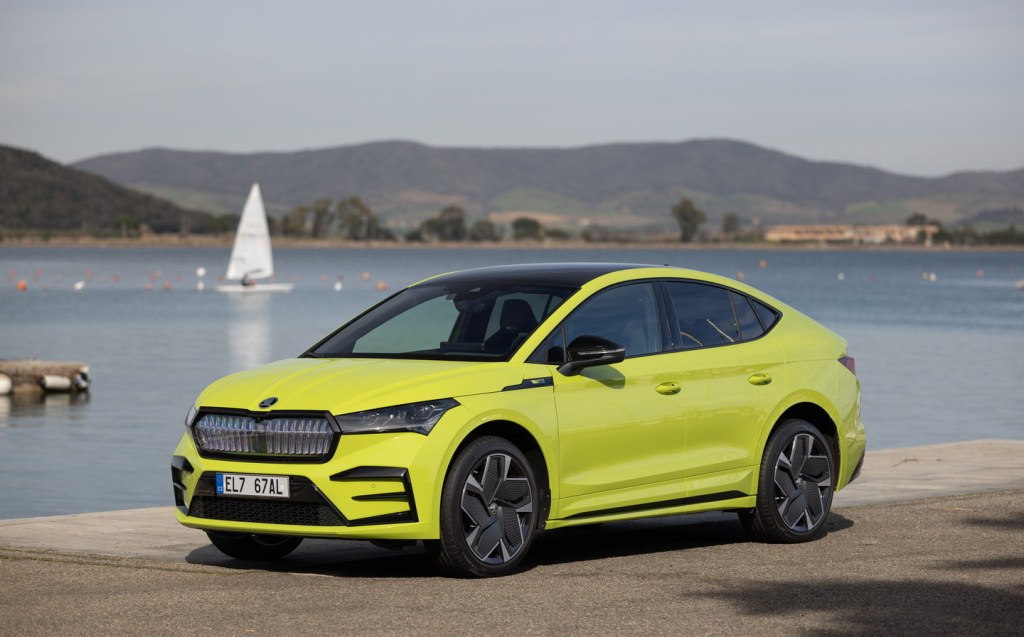
Exterior design and rivals
It certainly looks the part, especially in the ‘Hyper Green’ paintwork of our test car. Clearly, it’s a colour that’s not going to work for all, and you’d need to be an extrovert to enjoy it, but with the contrasting gloss black trim and the gorgeous 21in aero-blade alloy wheels, the Enyaq Coupé iV vRS is pretty striking.
From most angles, the haircut given to the roofline looks smart, and the Enyaq Coupé iV looks pleasingly sleeker than the chunkier SUV model. It’s only from dead astern that it looks odd — slightly too tall, narrow and a bit pinched.
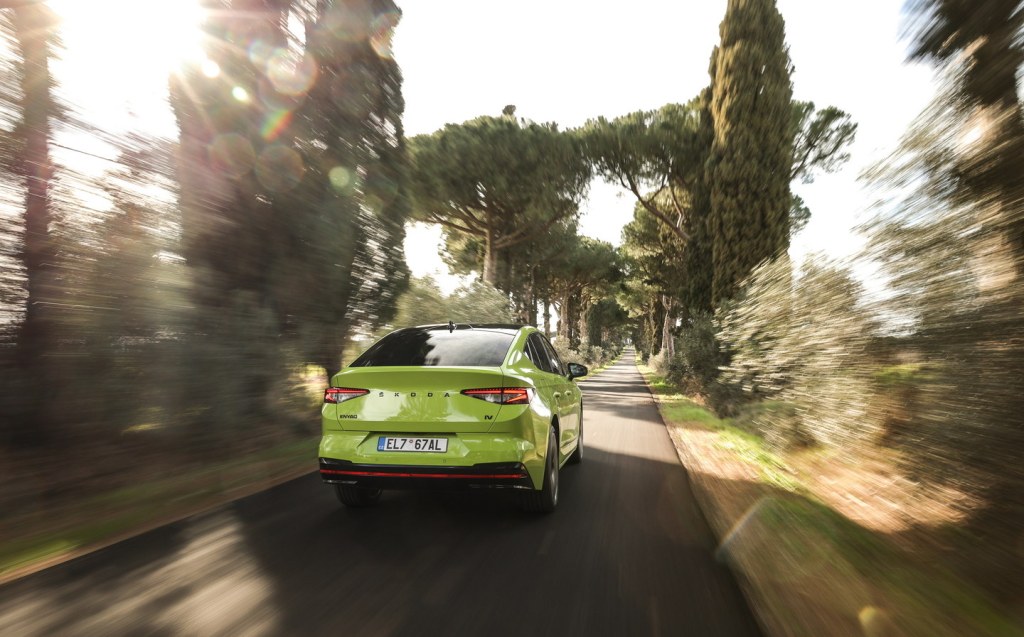
This vRS model also gets unique bumper designs front and rear and as standard it comes with the light-up grille, which is either uber cool or slightly tacky, depending on your persuasion.
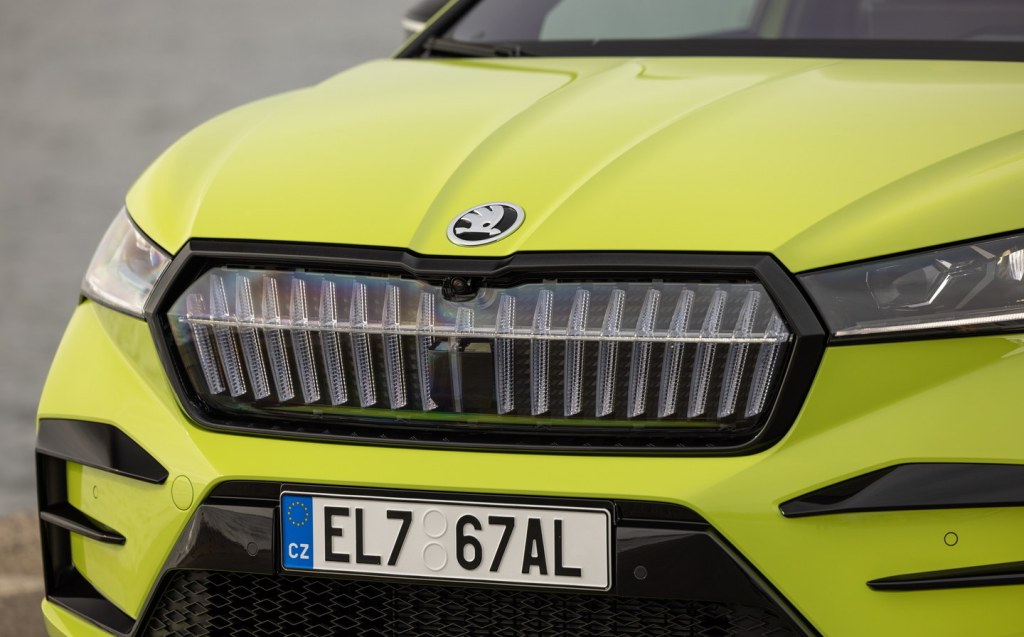
All Enyaq Coupés get a massive panoramic glass roof (thermally insulated so that it can do without a headroom-robbing retracting blind) and the lower sills of the car are body-coloured, which adds to the chunky-sporty-looks-like-a-Nike-sneaker effect
. Overall, it’s a good-looking thing, but you can’t help but imagine how much nicer it would be if it were about a foot lower, and badged as a Superb…
Interior and practicality
The inside of any Enyaq is just lovely, and we reckon it’s nicer than the cabins of the VW ID.4 and even (whisper it) the Audi Q4 e-tron.
The hefty quality of all but the least obvious of surfaces and the sheer sense of robust assembly take some beating, and the vRS’s combination of small, inset instrument screen and massive 13in central infotainment touchscreen works really well.
It helps that the dashboard is swaddled in soft-touch synthetic suede, with contrast green stitching to match the exterior.
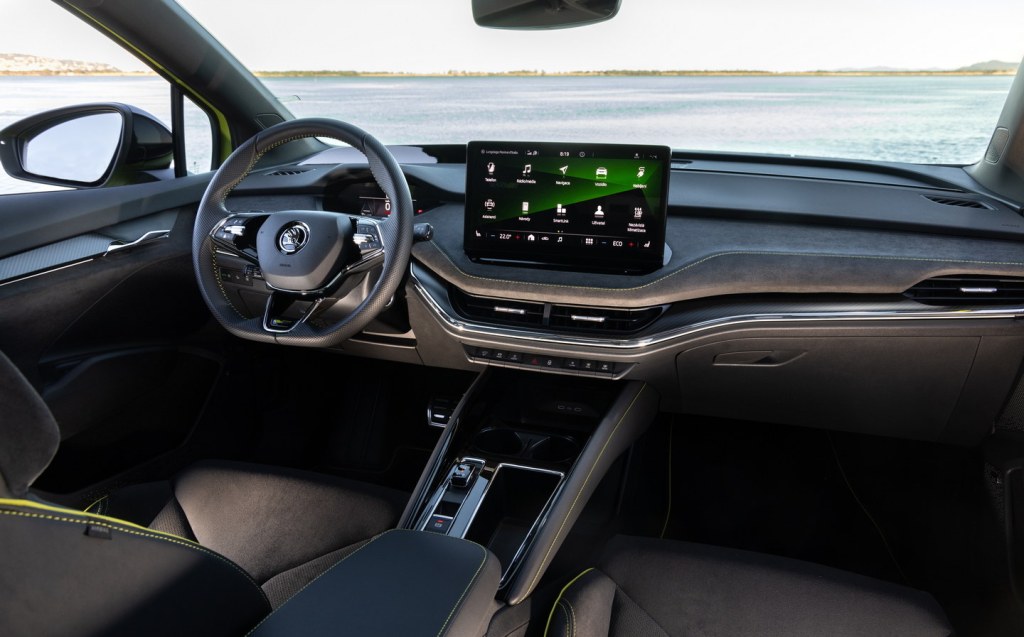
Also working in its favour, the front seats are high-backed buckets that manage to combine decent mid-corner support with squishy long-haul comfort. Put it this way: however long the battery charge lasts, you’ll still be comfortable behind the (leather-wrapped, also contrast-stitched) wheel.
In between the seats is the same roomy centre console as that of the standard Enyaq, so you get plenty of stowage space, although not as much as in the similar Volkswagen ID.4, as Skoda keeps the drive selector on the centre console, rather than moving it up behind the steering wheel.
Space in the back seats is surprisingly good. Skoda reckons that the available headroom is unchanged from that of the taller SUV Enyaq, thanks largely to the absence of a sunblind for the glass roof.
Obviously, you’ll subjectively feel a little more hemmed-in but the generous legroom, thanks to the big gap between the front and rear axles (with the flat battery pack under the floor), and the fact that there’s enough space to get someone comfortable in the centre rear seat, means that the Enyaq iV’s natural practicality has survived its conversion to a Coupé.
The boot has suffered slightly. Up to the luggage cover there’s 570 litres of space available, compared with 585 litres in the regular Enyaq iV. That is less, obviously, but you’ll hardly notice.
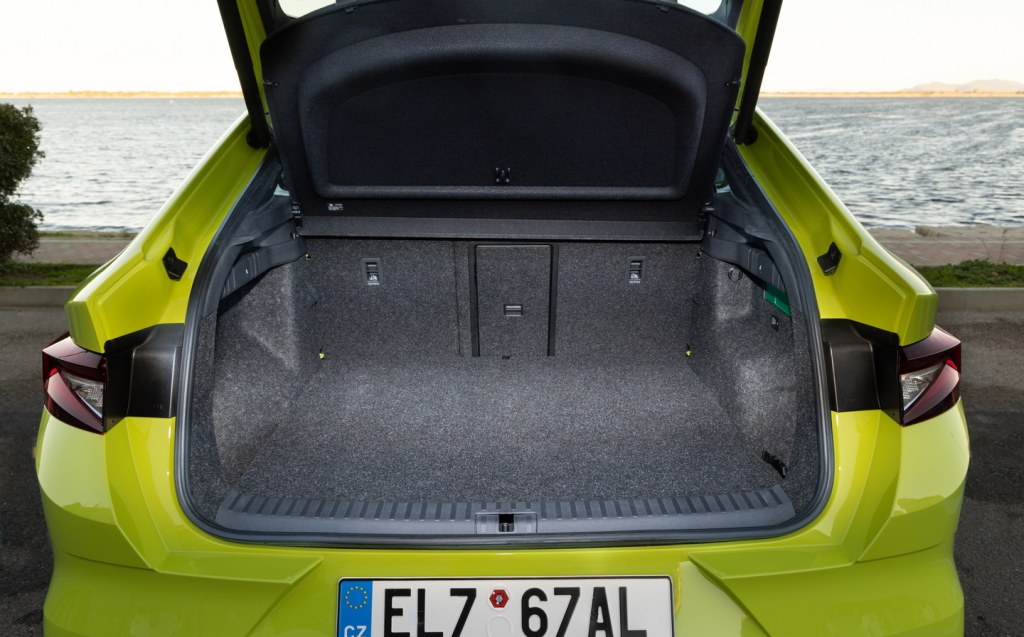
Where the Enyaq Coupé iV loses out is when you have to drop down the rear seats and load the car to the roof. Do that and you’ll have 1,610 litres to play with, compared to the standard Enyaq’s 1,710 litres.
You can at least adjust the height of the boot floor to give you a level loading lip, but the rear seats are only 60:40 split when you fold them, not the more versatile 40:20:40.
Technology and safety
Skoda has given the Enyaq a big software update to coincide with the arrival of this Coupé model. Called ME.3, it will now feature over-the-air updates, and owners of older Enyaqs will be able to bring their car in to a dealer to get the upgrade later in the year.
The new software has cleaned up and streamlined the Enyaq iV’s occasionally torturous touchscreen layout and menu logic. It now seems to take fewer presses, sweeps and swipes to get to the option that you want, and this constant evolution is one of the key advantages of a fully digital infotainment display. However, the lack of physical controls for frequently-used items (air conditioning especially) is less than ideal for swift, accurate adjustments.
The touch-sensitive volume control for the stereo (an excellent 12-speaker-and-subwoofer system from German experts Canton in this vRS model) is especially annoying, but the more tactile roller-switch on the steering wheel works well as an alternative
As before, you can hook your phone up to Apple CarPlay or Android Auto, and you can do that wirelessly or via a USB-C cable. There’s also wireless phone charging.
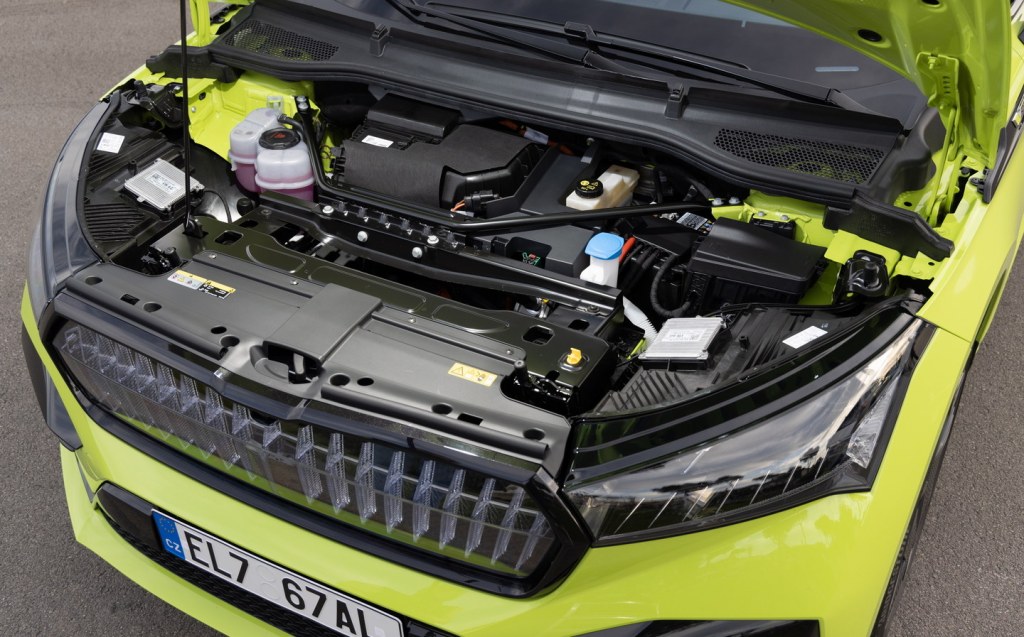
The software update has also boosted the Enyaq iV’s safety systems. Those software tweaks improve the lane-keeping assist, so that it can now recognise when you’re driving through narrow roadworks lanes, as well as bringing with it an emergency steering aid that helps you to swerve away from danger.
The safety systems can now also take ‘swarm’ data from other cars in the area, pre-warning it of any major dangers or obstructions on your route. On a simpler level, the updated navigation now works in charging stops on longer journeys, and allows you to specify which charging provider you’d rather use.
The structure of the Enyaq Coupé iV is sufficiently different so that it required a fresh round of Euro NCAP crash tests, and the Coupé scored the same five-star rating as the Enyaq with the larger derrière.
The Enyaq Coupé iV can also change lanes for you in cruise control on the motorway, and the active parking system has been improved so that it can now store frequently-used manoeuvres and geo-tag them, automatically swinging you into your usual parking space when you arrive.
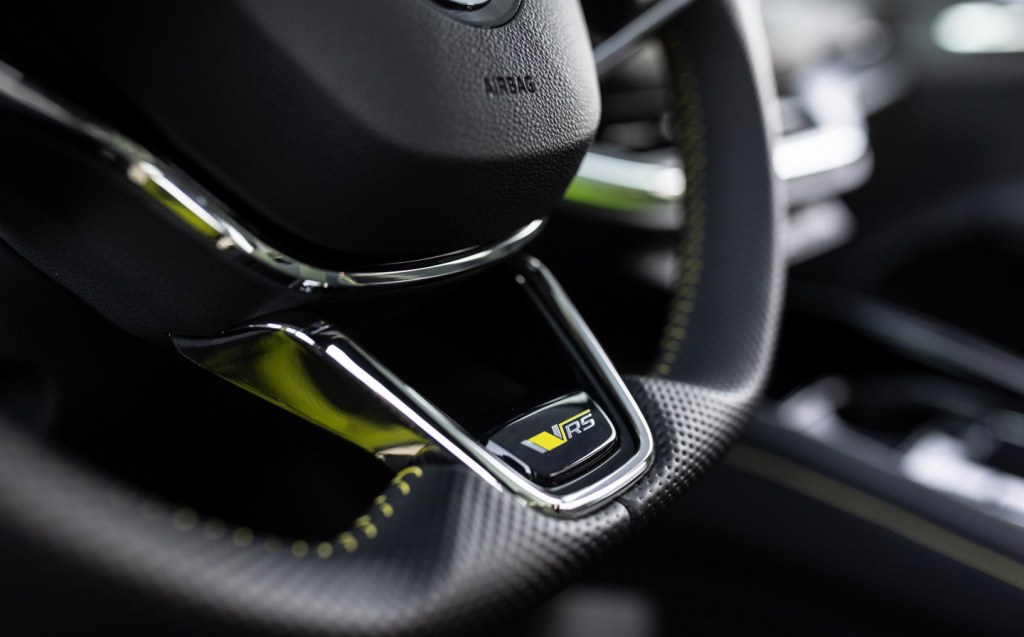
The head-up display is impressive, shining speed and navigation instructions onto the windscreen. The big blue arrows that it uses to direct you down the correct road are especially useful when you’re tackling confusing junctions.
Ride and handling
As with its close cousin, the Volkswagen ID.4 GTX, the Skoda Enyaq Coupé iV vRS has a weight issue. It’s pressing 2.3 tons into the tarmac, which is perhaps not the worst when it comes to bulk but it’s quite a bit for a car wearing the sporty vRS badge. Certainly, it limits the performance.
Compared with the standard Enyaq iV and Coupé iV, the Coupé iV vRS gets an extra motor, mounted up front, giving it four-wheel drive, 294bhp and up to 339lb ft of torque.
Acceleration is decent, with 62mph coming up in 6.5 seconds from rest, and the top speed of 112mph is faster than the usual 99mph Enyaq (although not of much use in the UK, and very high speeds are not smart in electric cars as they drain the battery very quickly).
It feels punchy, too, and although after the initial burst of acceleration the power tails off, at higher cruising speeds, there always seems to be something in reserve, which is important for safe overtakes.
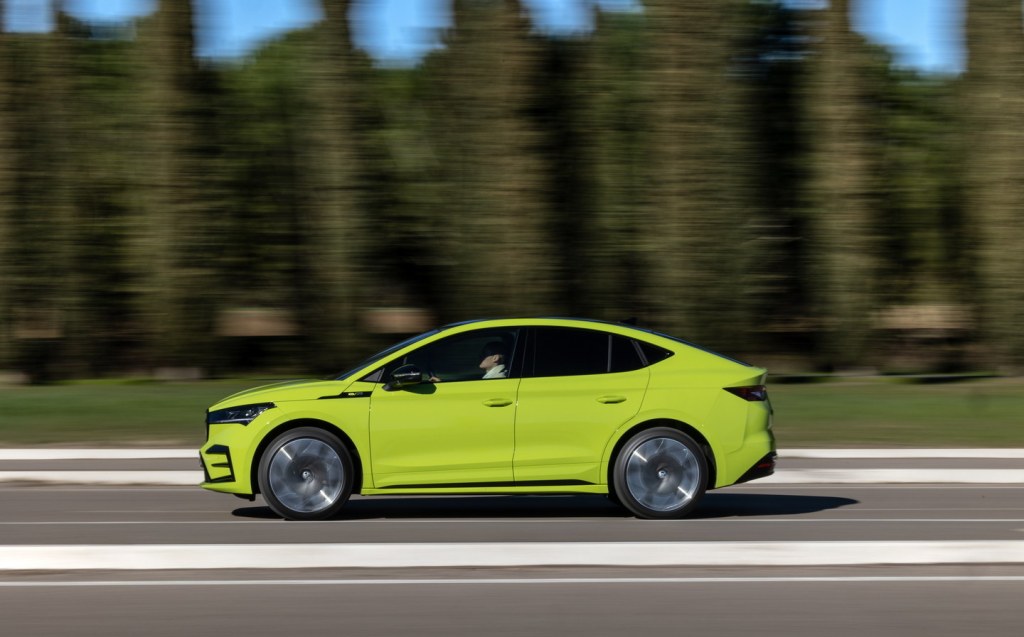
The handling, though, is not that great. Initially, the Enyaq Coupé iV vRS turns in quickly and sharply to a given corner, and if the steering is a bit on the numb side, then at least it’s nicely weighted and sensibly geared for speed. The problem is that once you’ve turned in, the car’s heft inexorably starts to pull the vRS away from the apex, building up steady understeer as the front wheels struggle to cling on.
Activate Sport mode, and the front motor works to balance the car a little better, but the car is just too heavy to be considered real fun. It’s not that it’s not enjoyable to drive — the combo of impressive power, smoothness and stability means that it’s never less than satisfying — but it’s just not enough of a leap forward compared to the slower, standard model.
Indeed, the only real advantage compared to a 201bhp, rear-drive Enyaq iV Coupé is that the vRS’s ability to put its power down is peerless — traction is all-but total.
The ride quality also suffers a little compared to the regular Enyaq iV. Both Coupé iV and Coupé iV vRS get suspension that’s 15mm lower at the front and 10mm lower at the rear, and in concert with the 21in alloy wheels you’ll notice a good deal more bump-thump than you will in the magic-carpet standard Enyaq.
The optional adaptive suspension system can dial some of that out if you select Comfort mode, but not quite all of it.
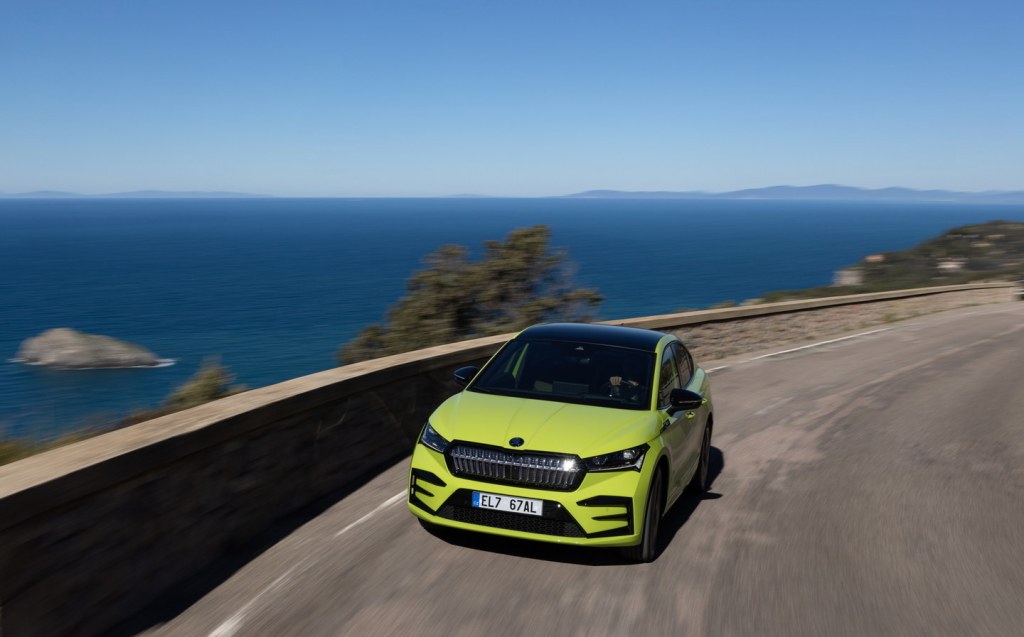
One area where the Enyaq iV Coupé and Coupé iV vRS do out-perform the regular car is in range. Thanks to the more aerodynamically slippery bodywork (plus a small bit of battery-management electronic trickery) the 201bhp Coupé can manage an official (and believable, based on our test drive) 335 miles between charges.
The more powerful, heavier vRS still manages a creditable 310 miles, which is not to be sniffed at. The software update means that the Coupé and vRS Coupé can now also charge a little faster, too, at 135kW (up from 125kW) if you can find a powerful-enough public DC charging point.
Pricing and on-sale date
The Enyaq Coupé iV vRS is already on sale, but a price tag of £51,885 is pretty gulp-inducing for a car with a Skoda badge, even taking into account how much the perception of that badge has improved in the past 20 years. It’s a lot of money, and actually a little pricier than the basic version of the mechanically-identical VW ID.4 GTX.
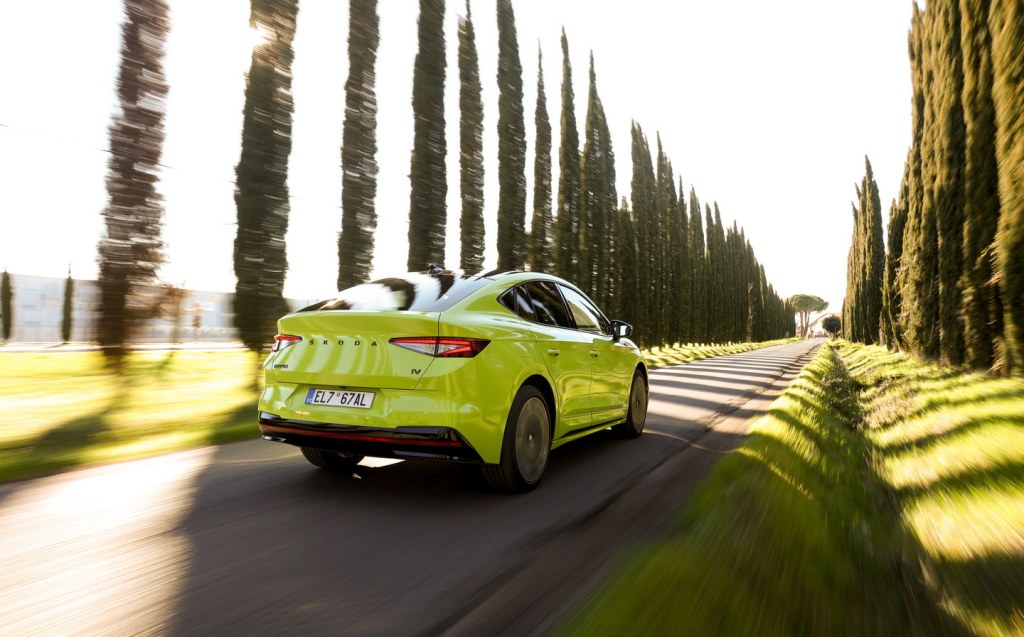
You do get a lot of kit, though, starting with the light-up grille and continuing with the glass roof, a powered tailgate, the 13in touchscreen and heated front and rear seats.
For reference, a Tesla Model Y long range, with 434bhp and a 315-mile claimed range, costs £54,990, while a Ford Mustang Mach-E extended range all-wheel drive offers a 335-mile range, 345bhp and costs £58,230.
Verdict: Skoda Enyaq Coupé iV vRS review
For all its faults — excess weight, chunky price tag, questionable light-up grille, the fact that it’s an SUV trying to cosplay as a coupé — the Enyaq Coupé iV vRS is a loveable thing.
It’s not too much of a wild beast, and whether it’s worthy of the vRS badge is debatable, but it’s certainly handsome and comes with a terrific cabin.
It does fall a little short on the handling and ride quality fronts, and crucially it doesn’t really do much that the more affordable, longer-ranged coupé can’t do equally well, so it’s probably better to just go for the regular Enyaq Coupé iV, and enjoy the looks without the expense or the range penalty. Or you could simply spend your money on the bigger-bummed Enyaq iV, which is an excellent family car.
Related articles
- After reading this review of the 2022 Skoda Enyaq Coupé iV vRS, you might want to see our review of the Volkswagen ID. Buzz
- Here are all the car makers’ electric car plans
- Read our review of the Renault Mégane E-Tech Electric
Latest articles
- Lewis Hamilton wants to design a modern day Ferrari F40 with manual gearbox

- Dacia Bigster 2025 review: The ‘anti-premium’ family SUV that punches above its weight

- Your car’s worn tyres could be being burnt illegally in India, investigation reveals

- Open-top 214mph Aston Martin Vanquish Volante is world’s fastest blow-dry

- F1 2025 calendar and race reports: The new Formula One season as it happens



